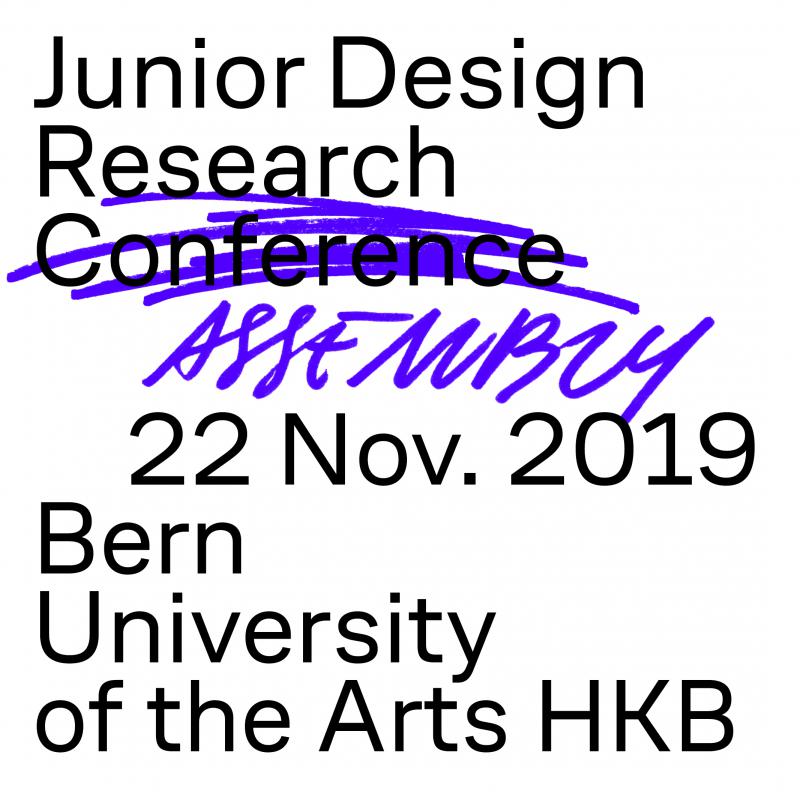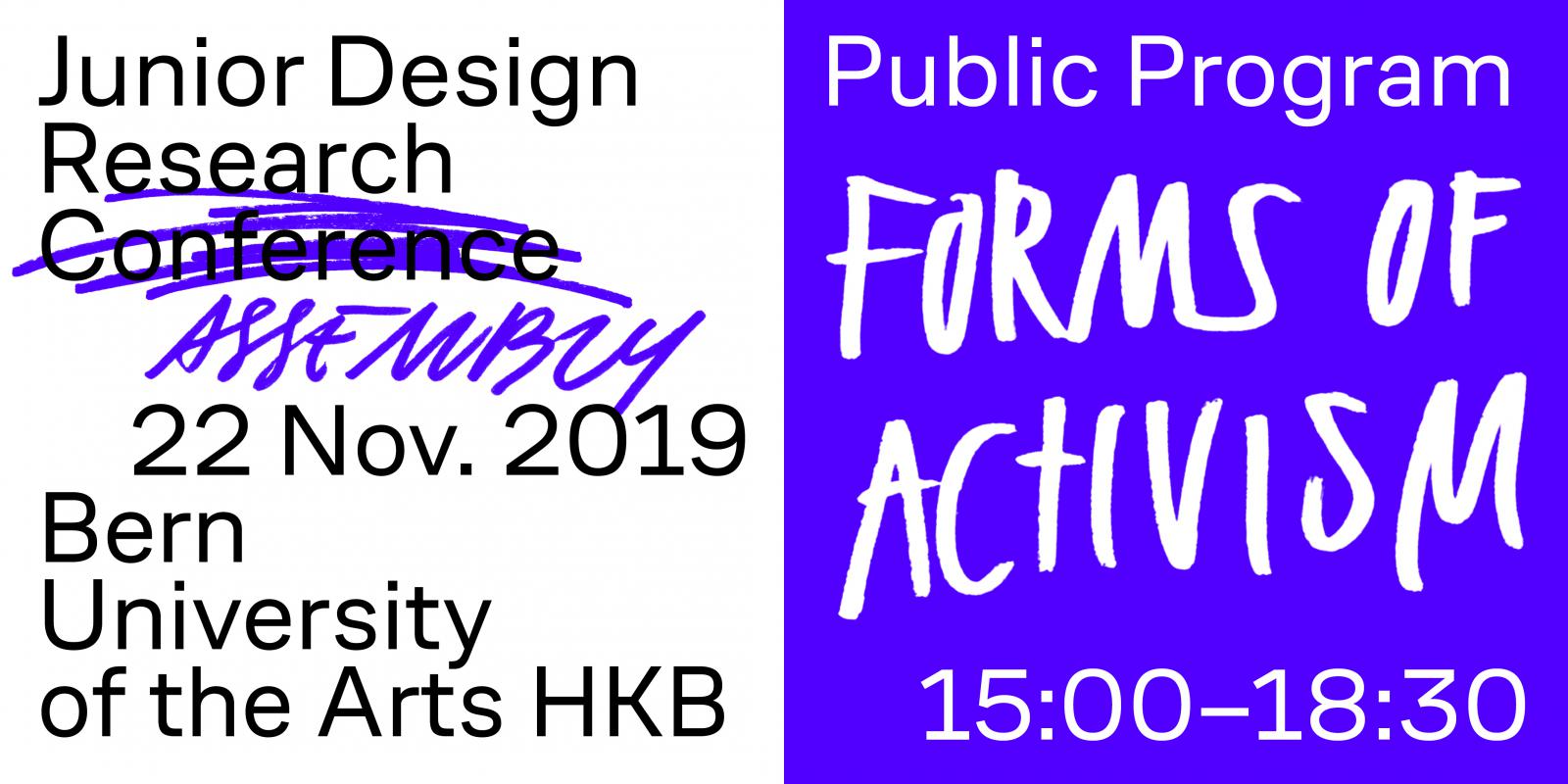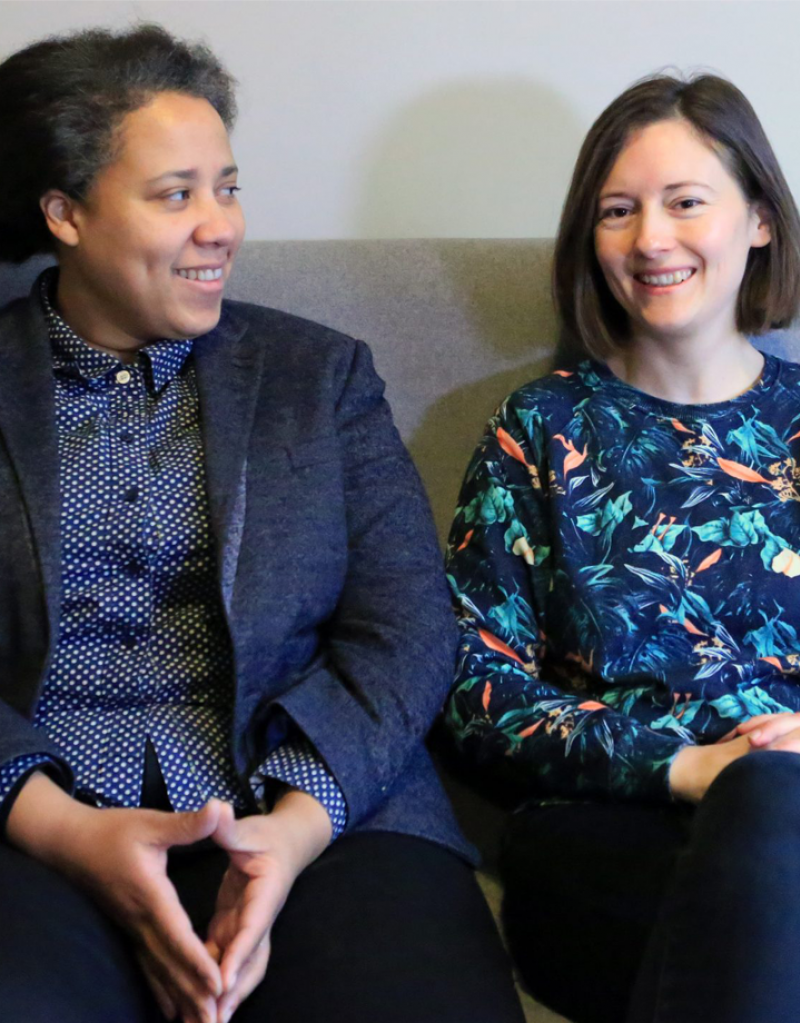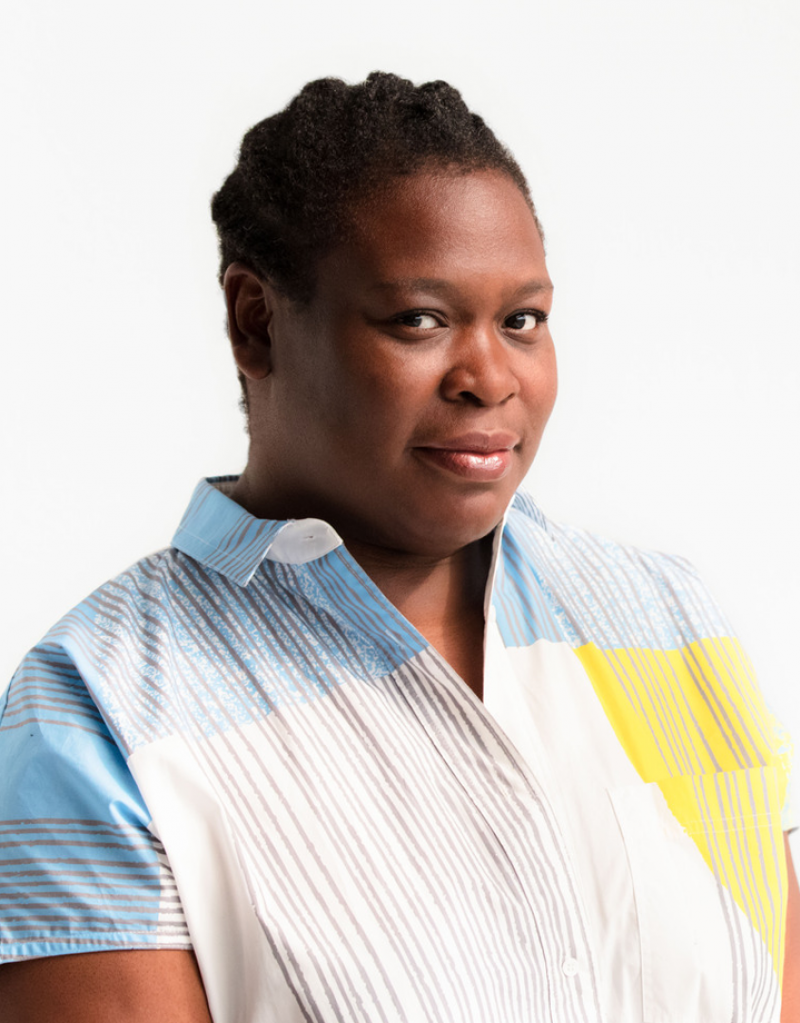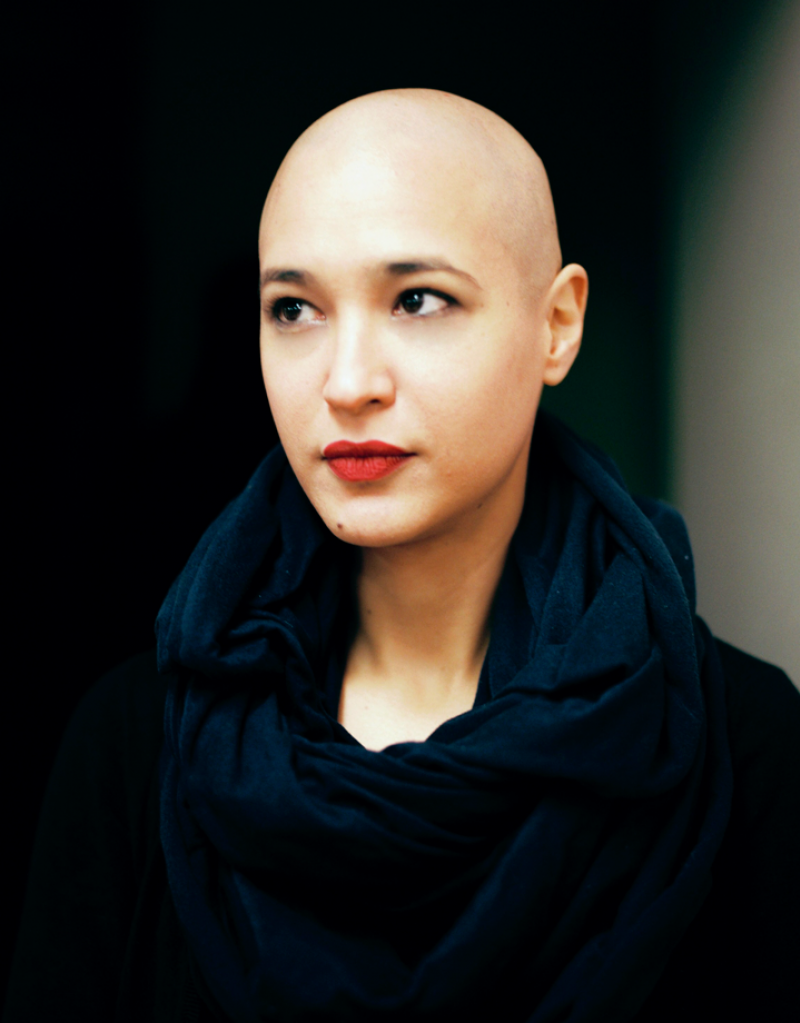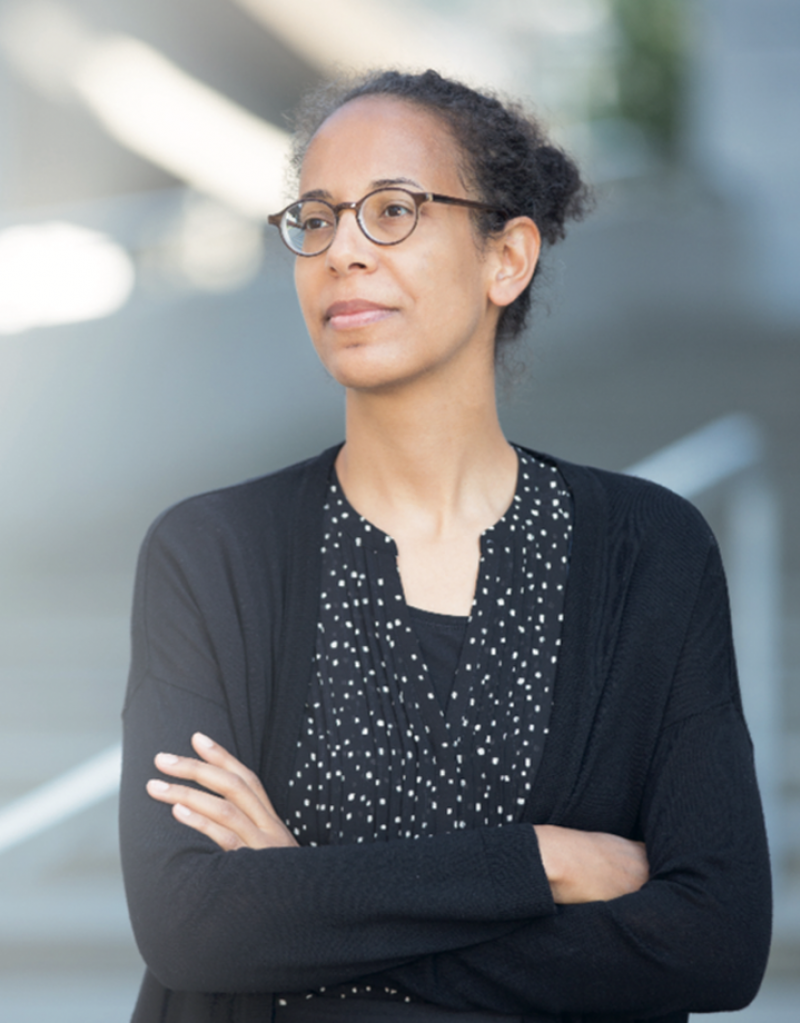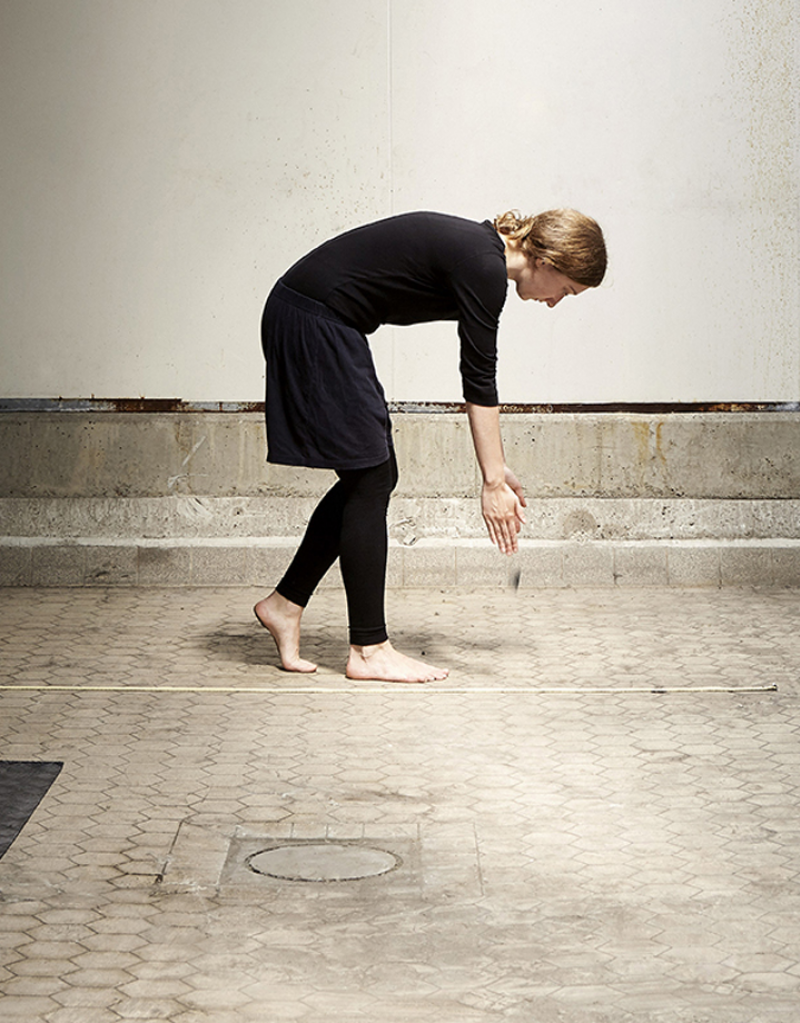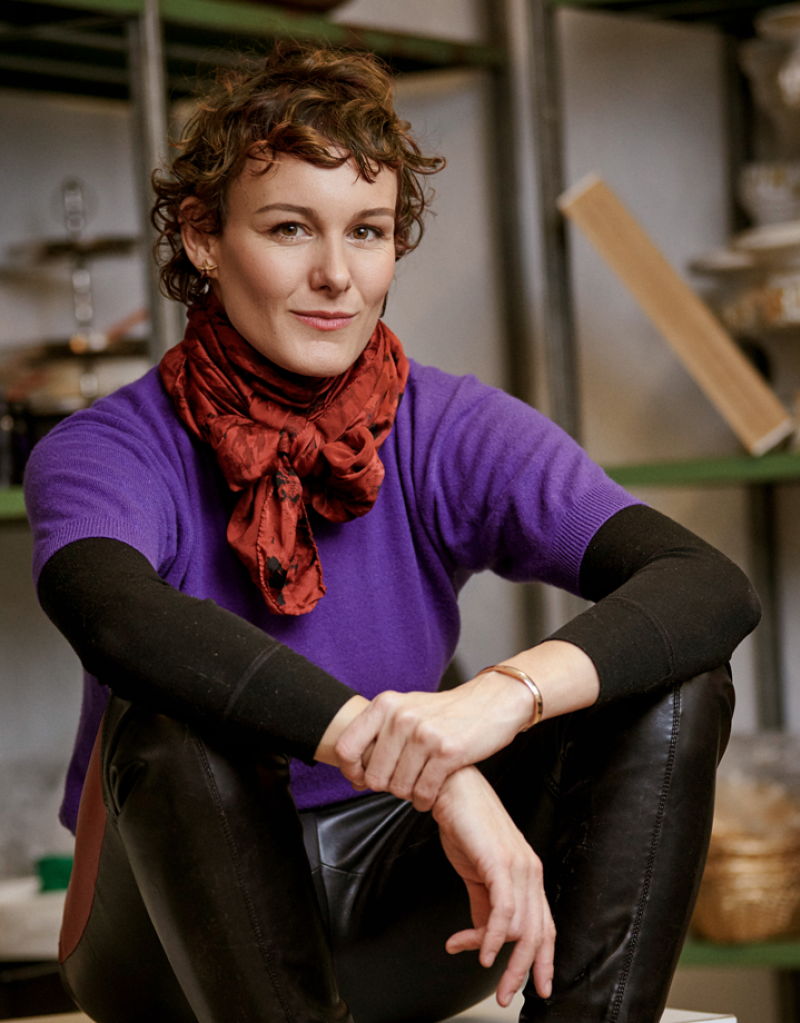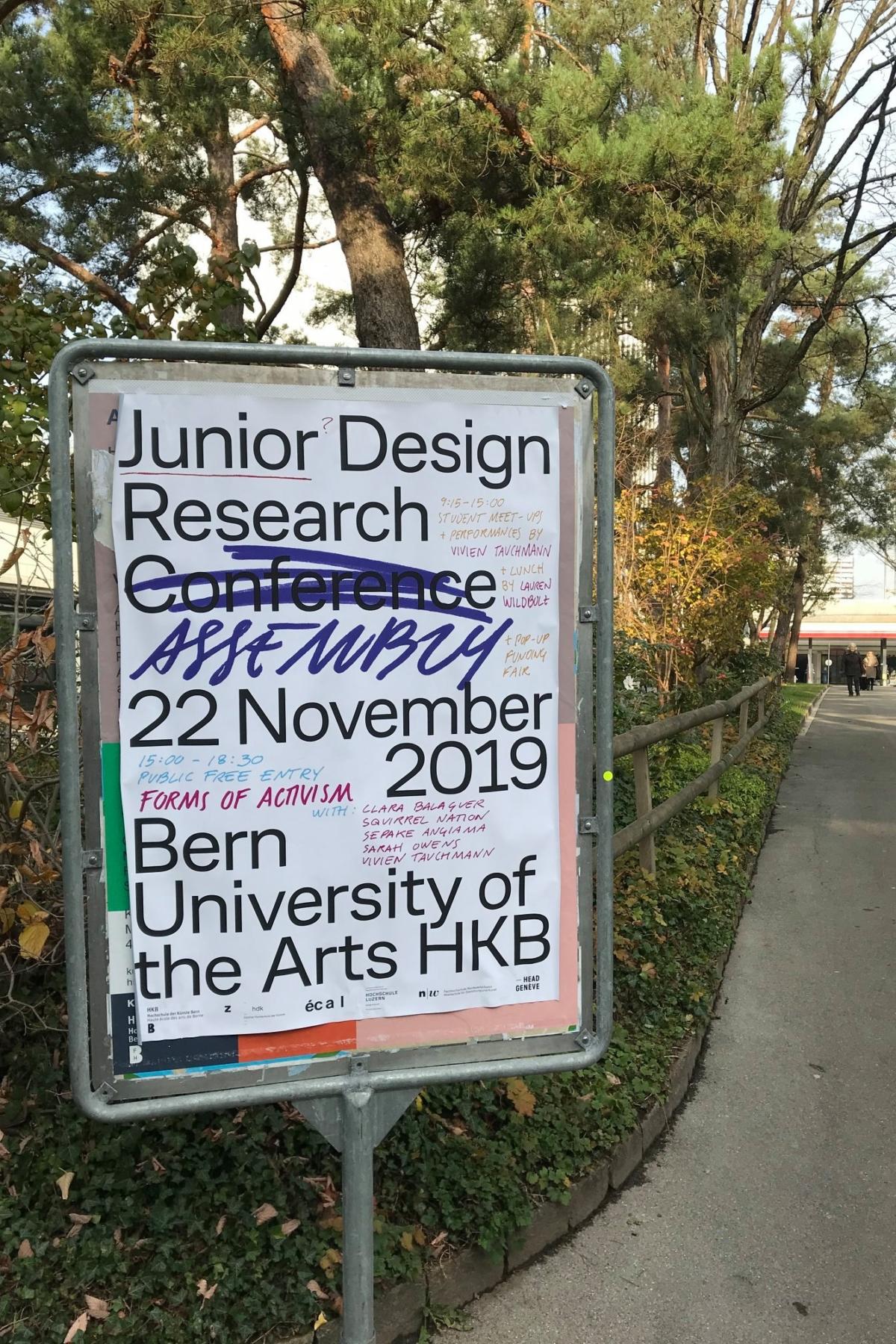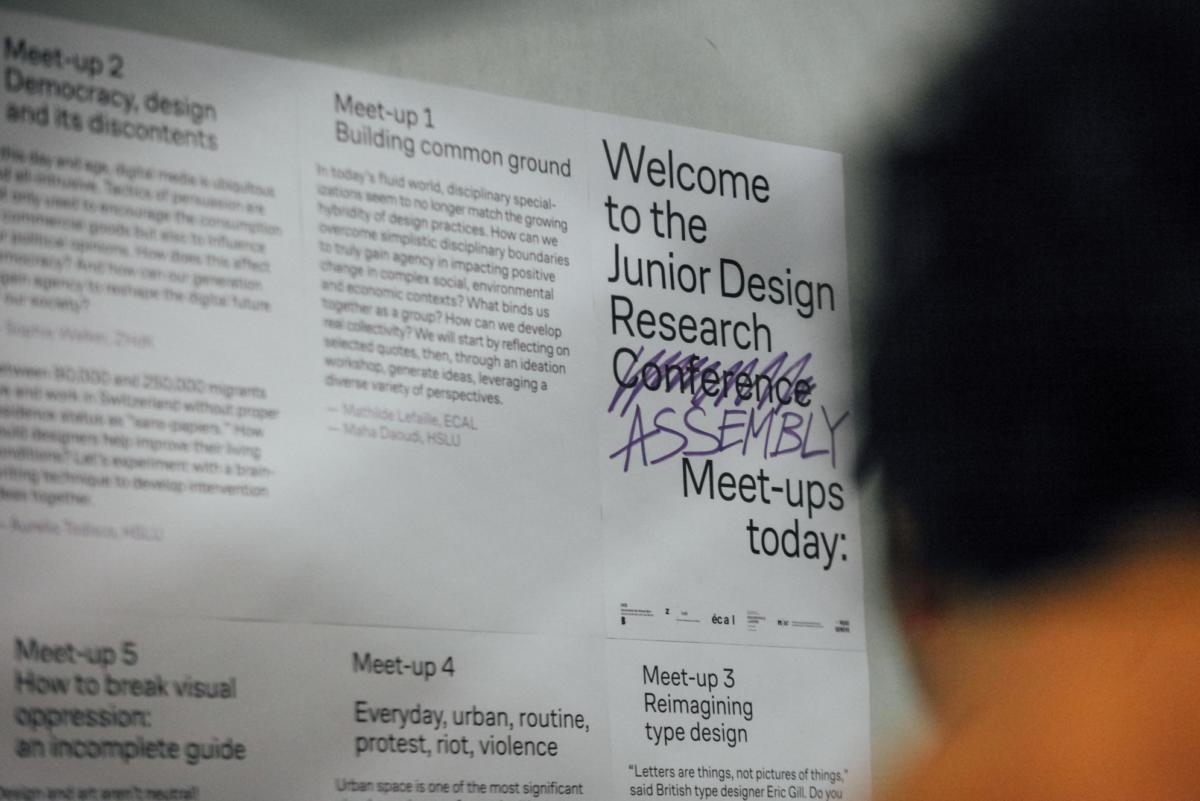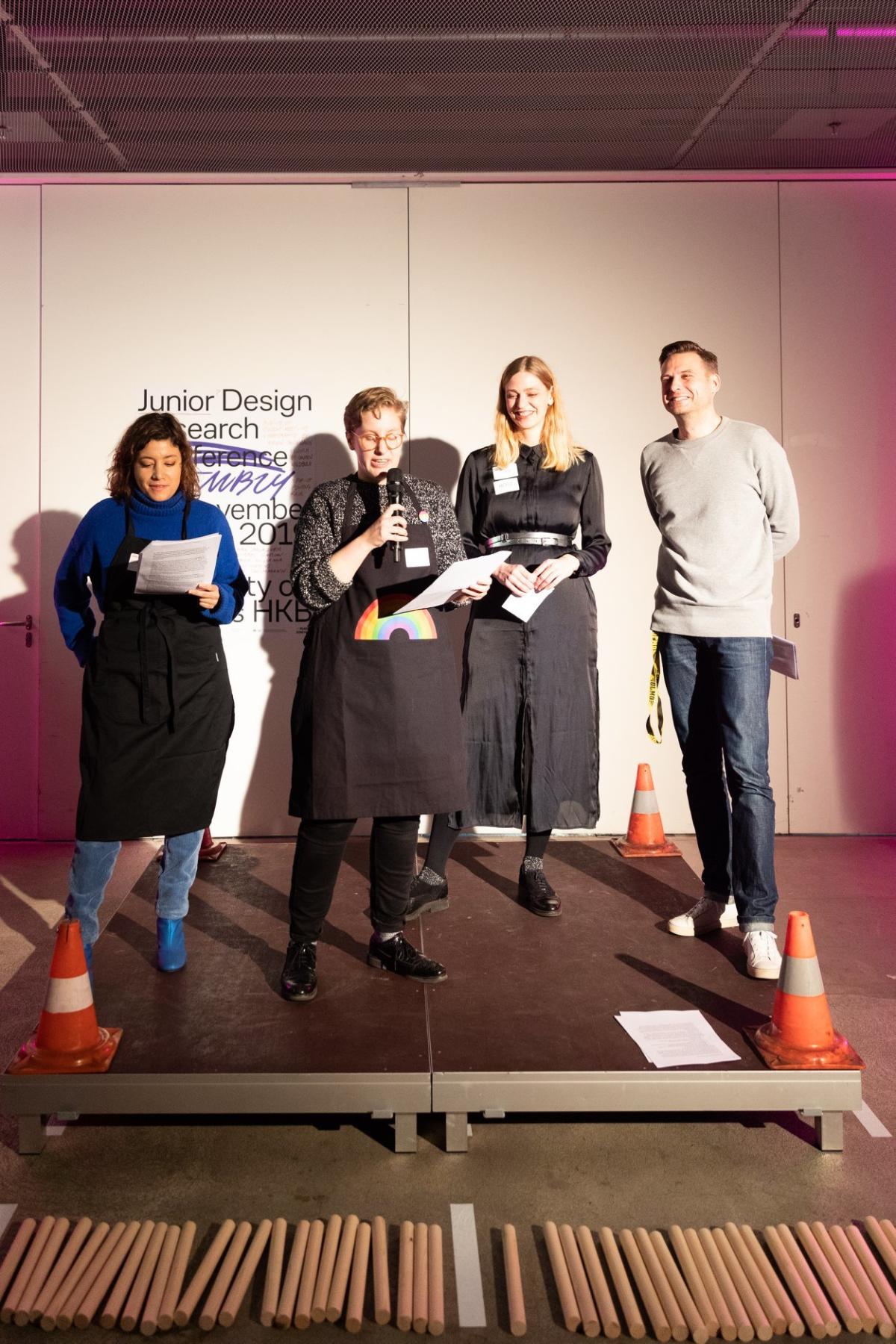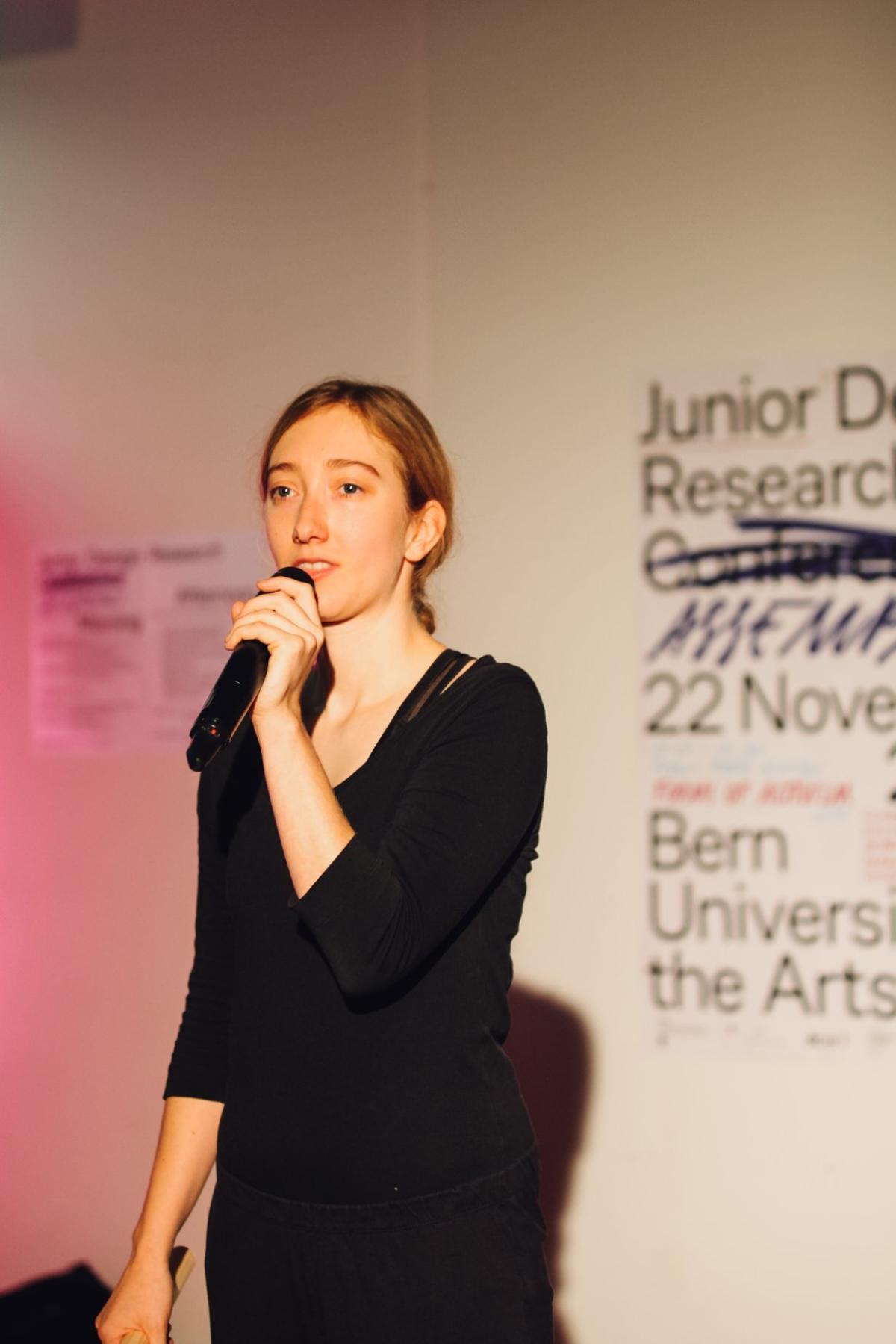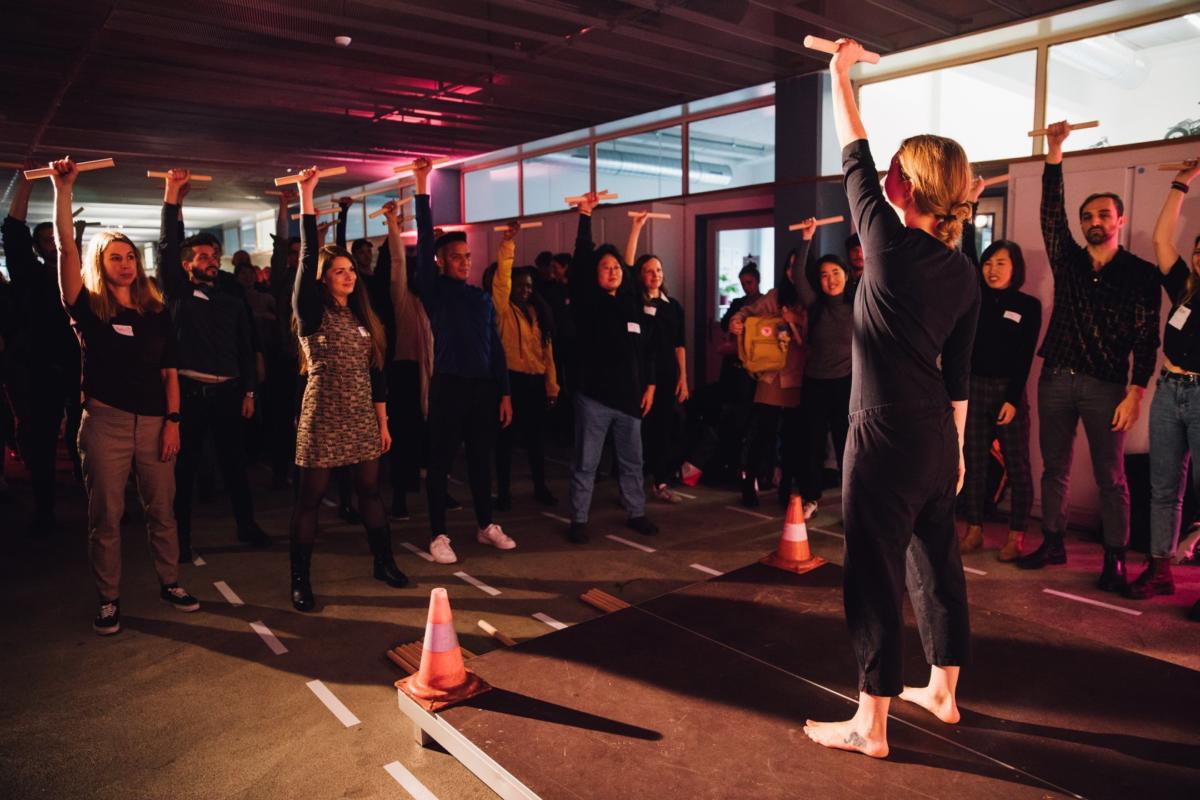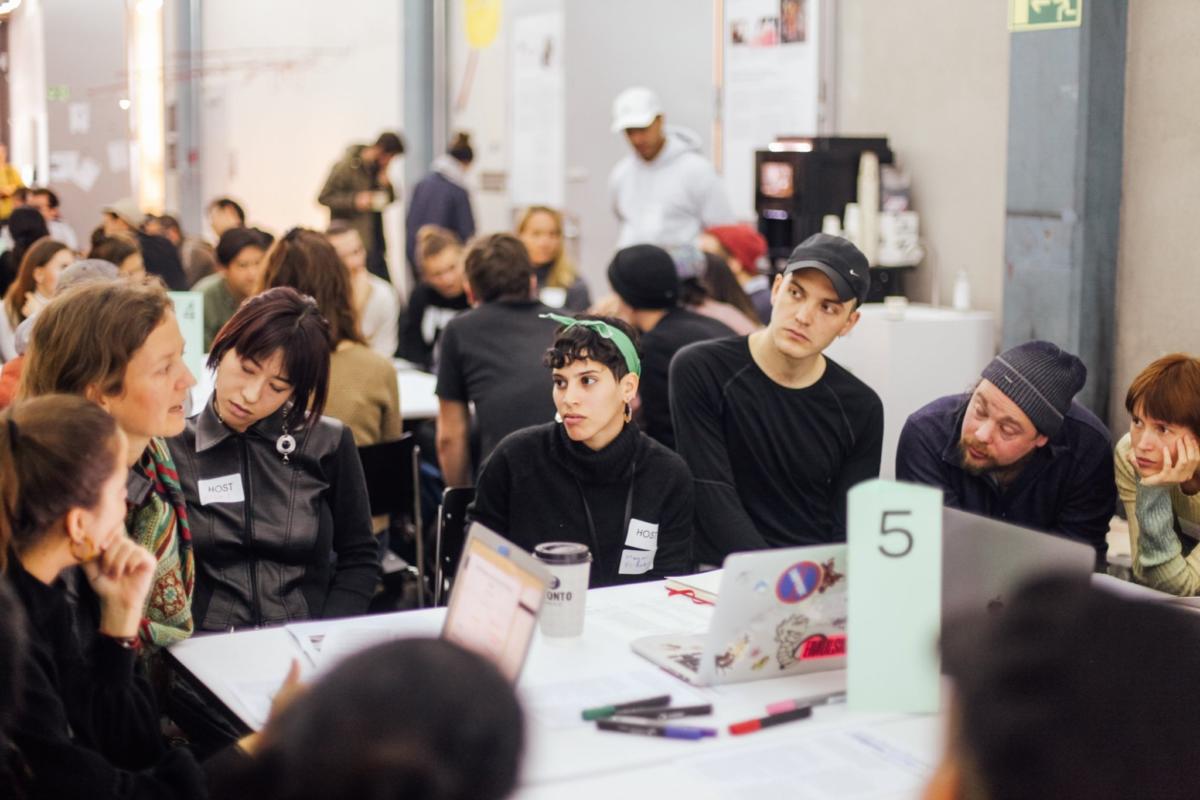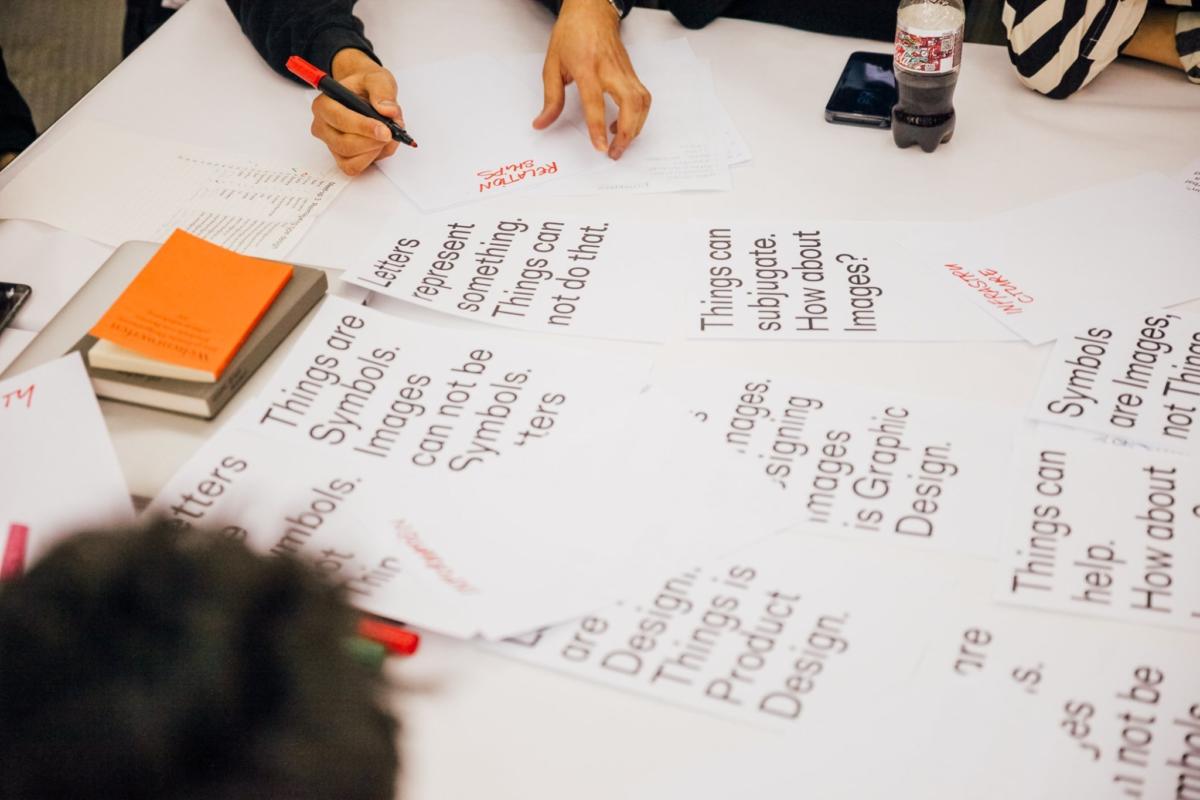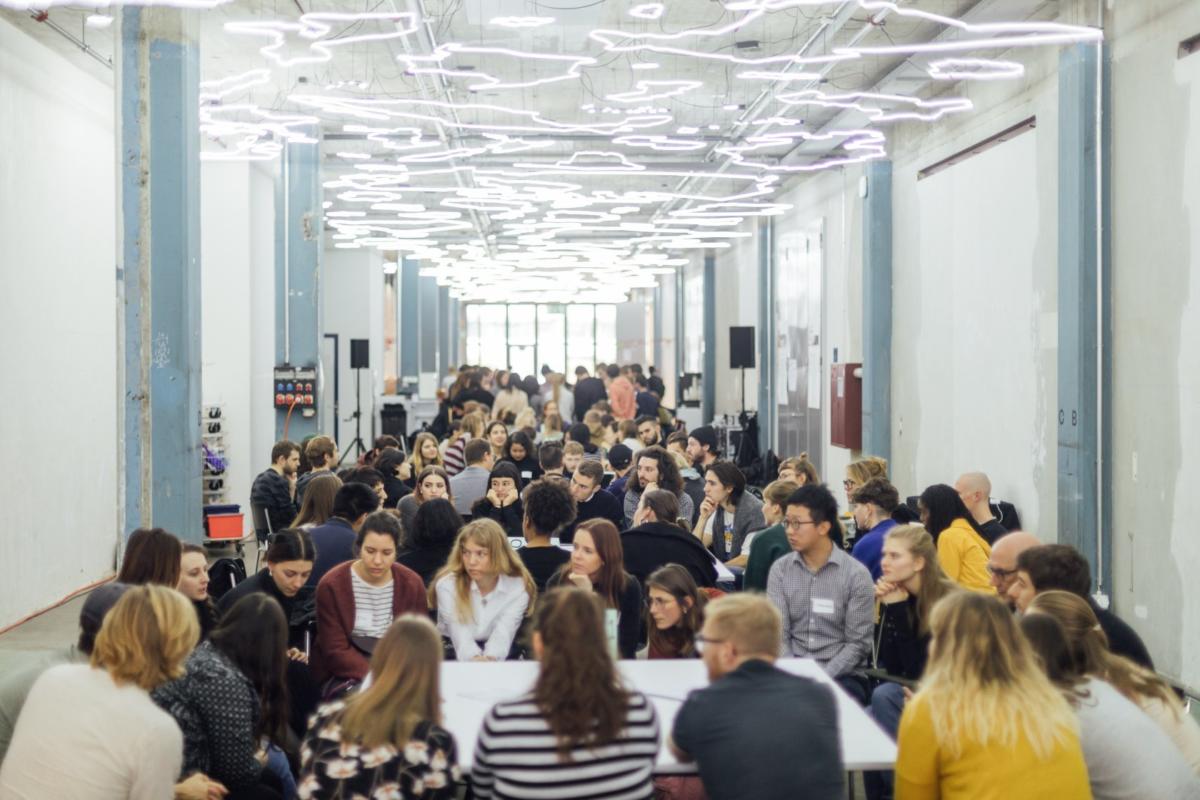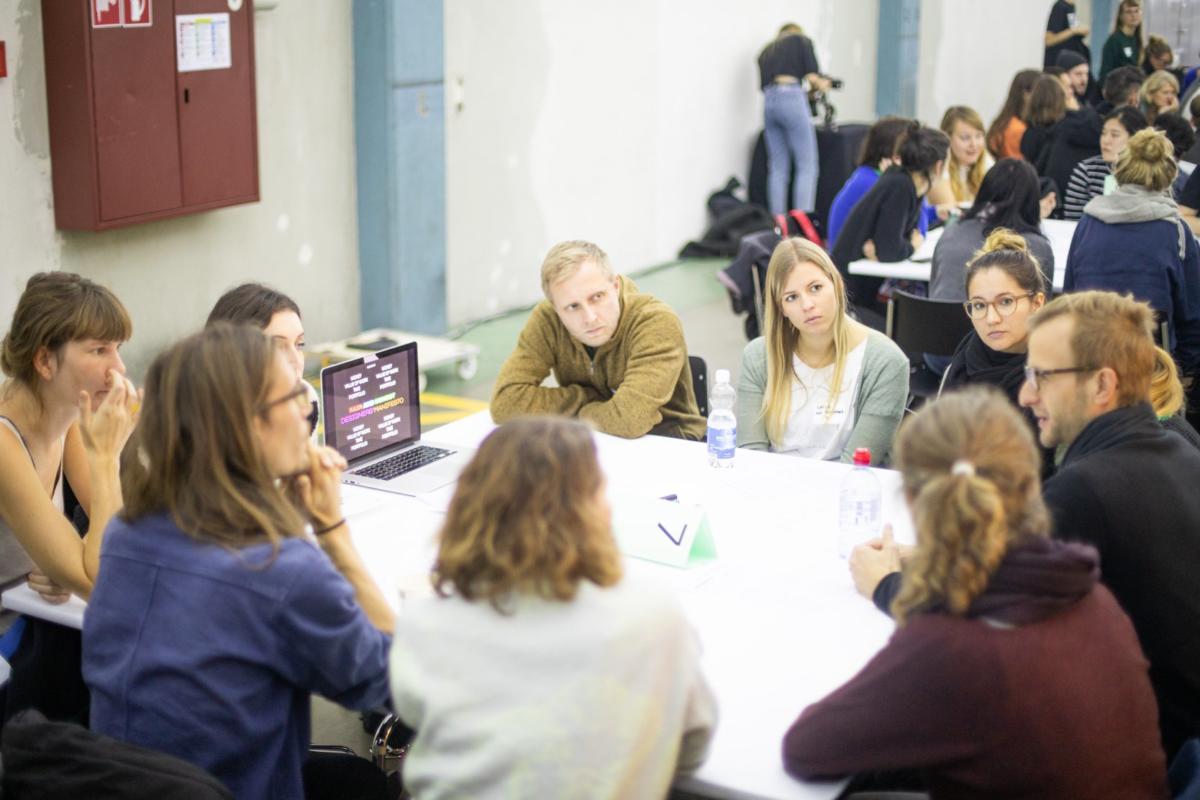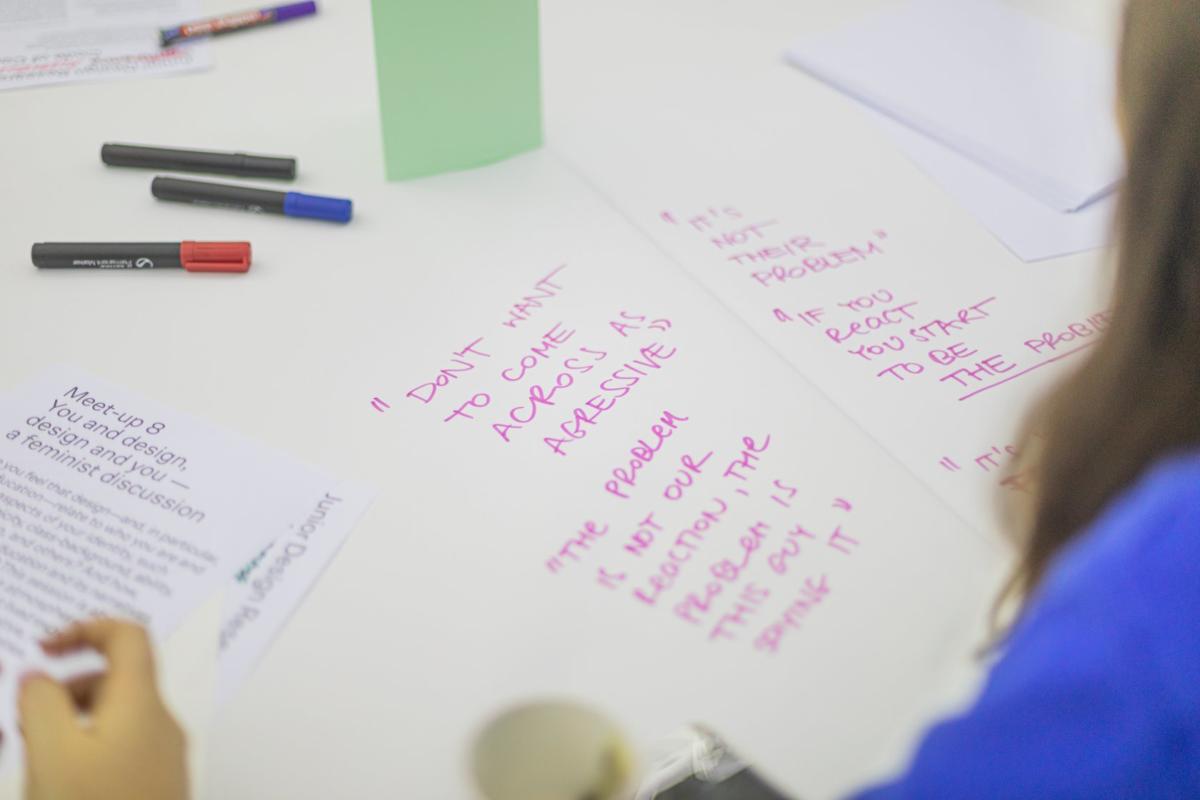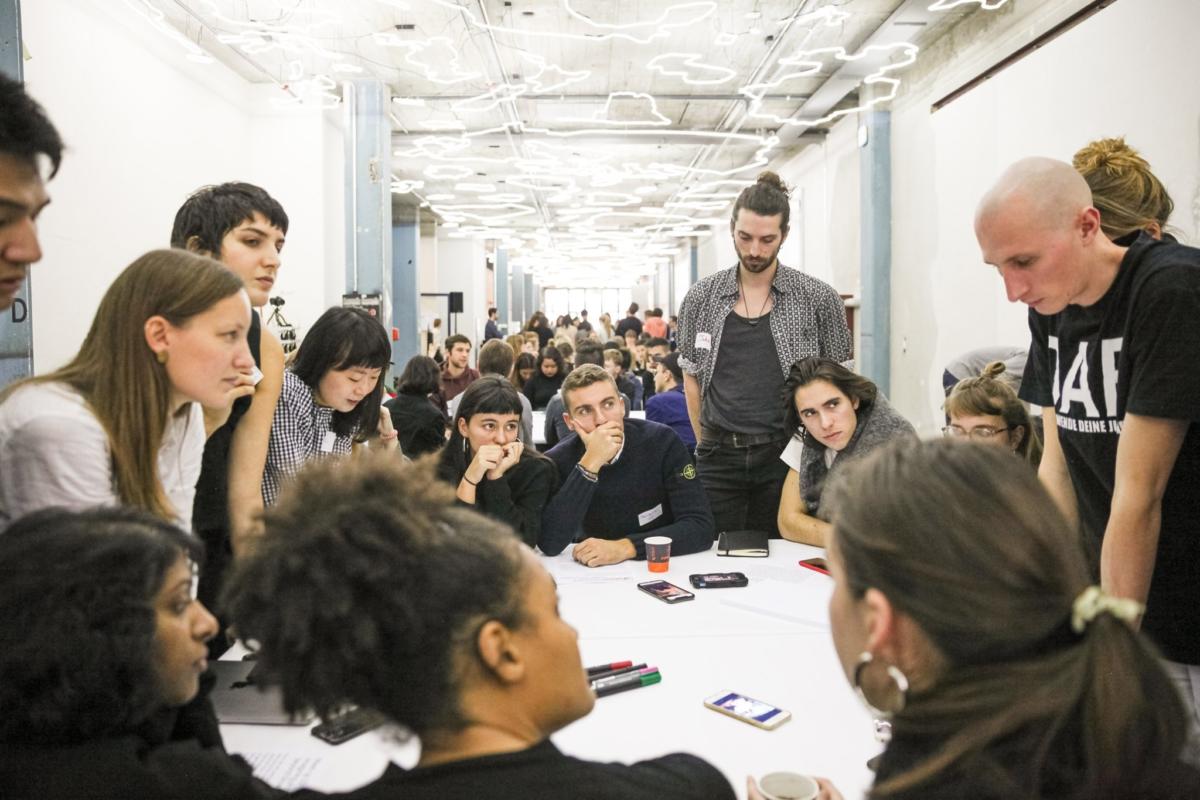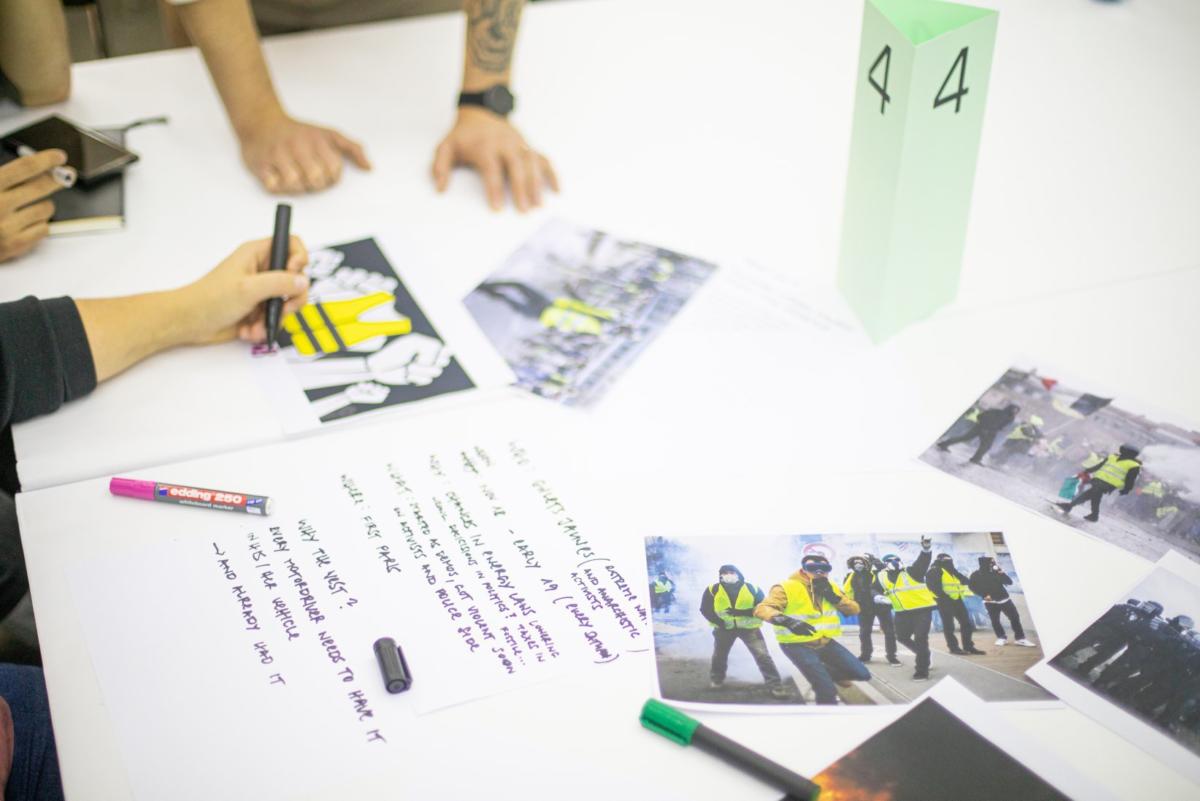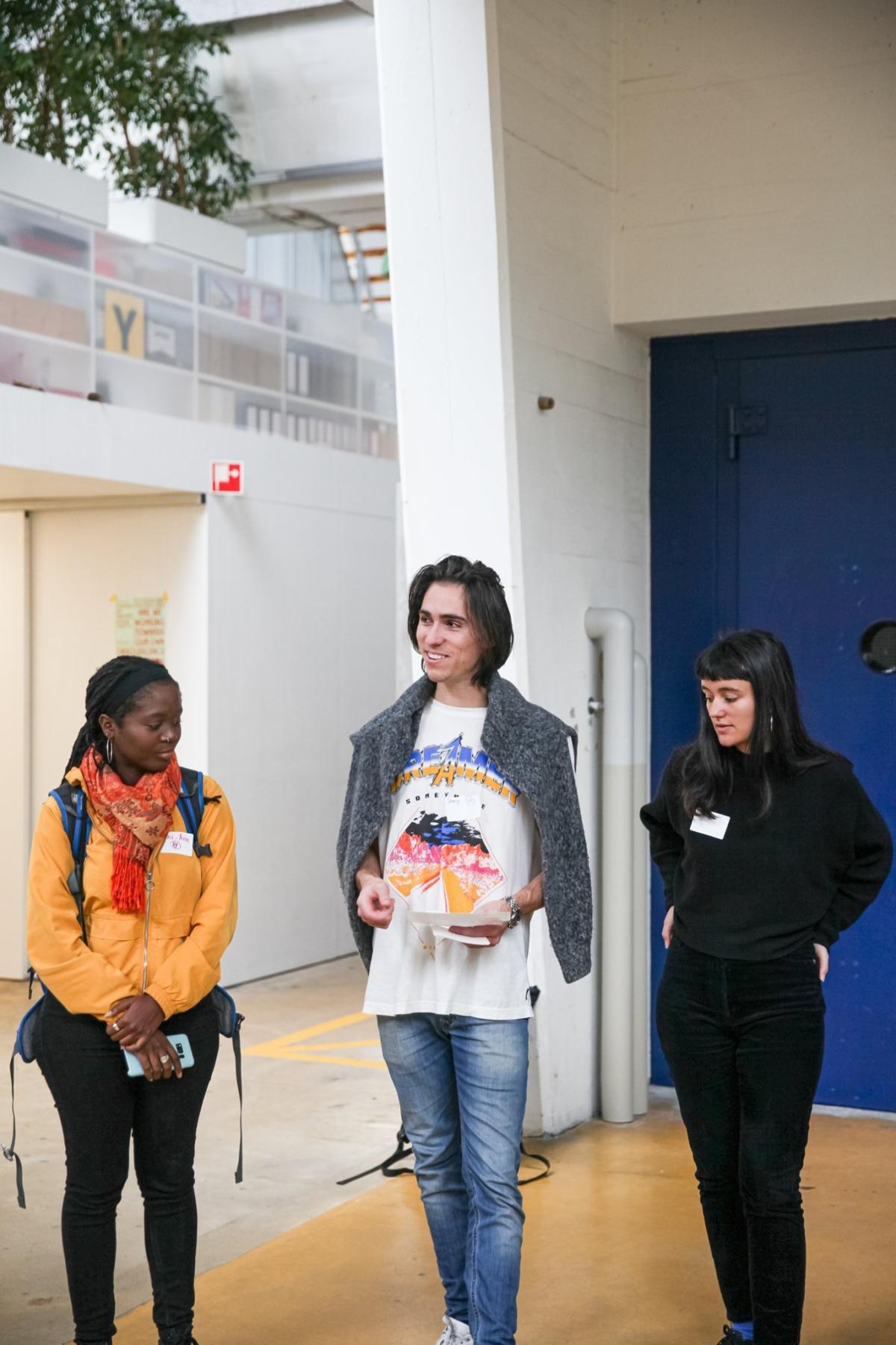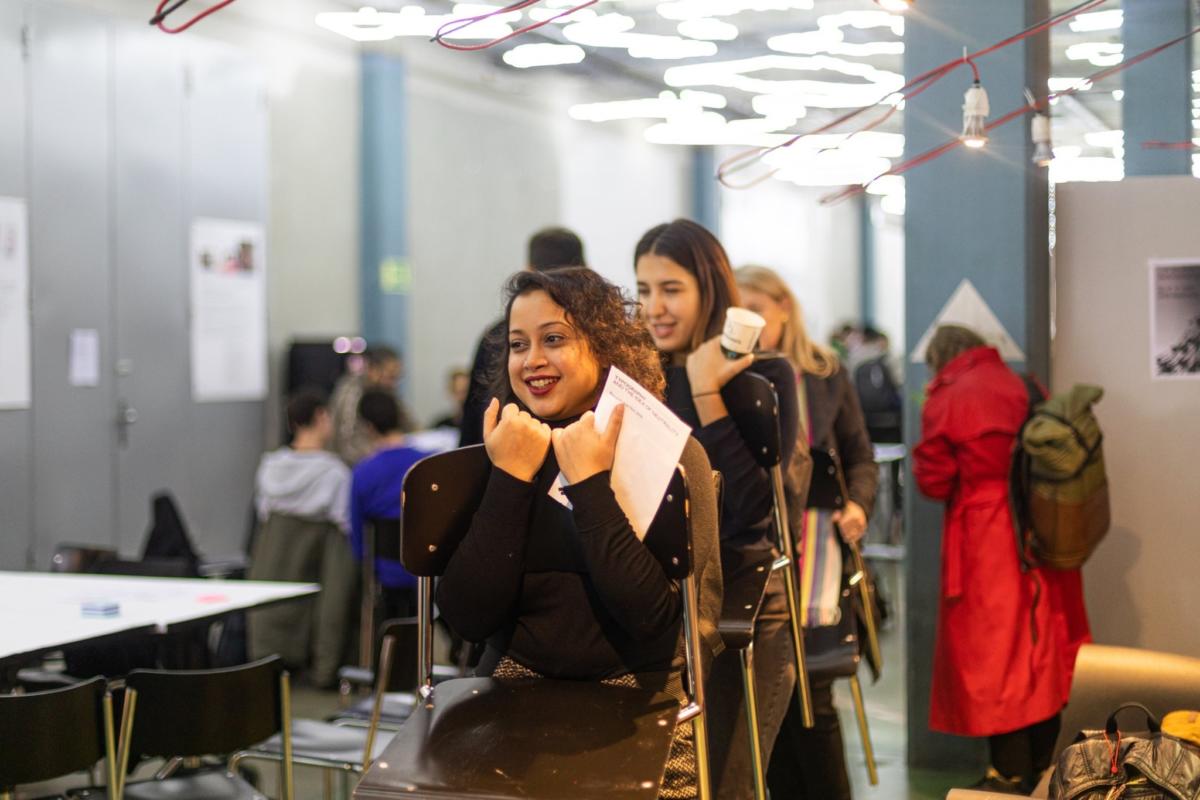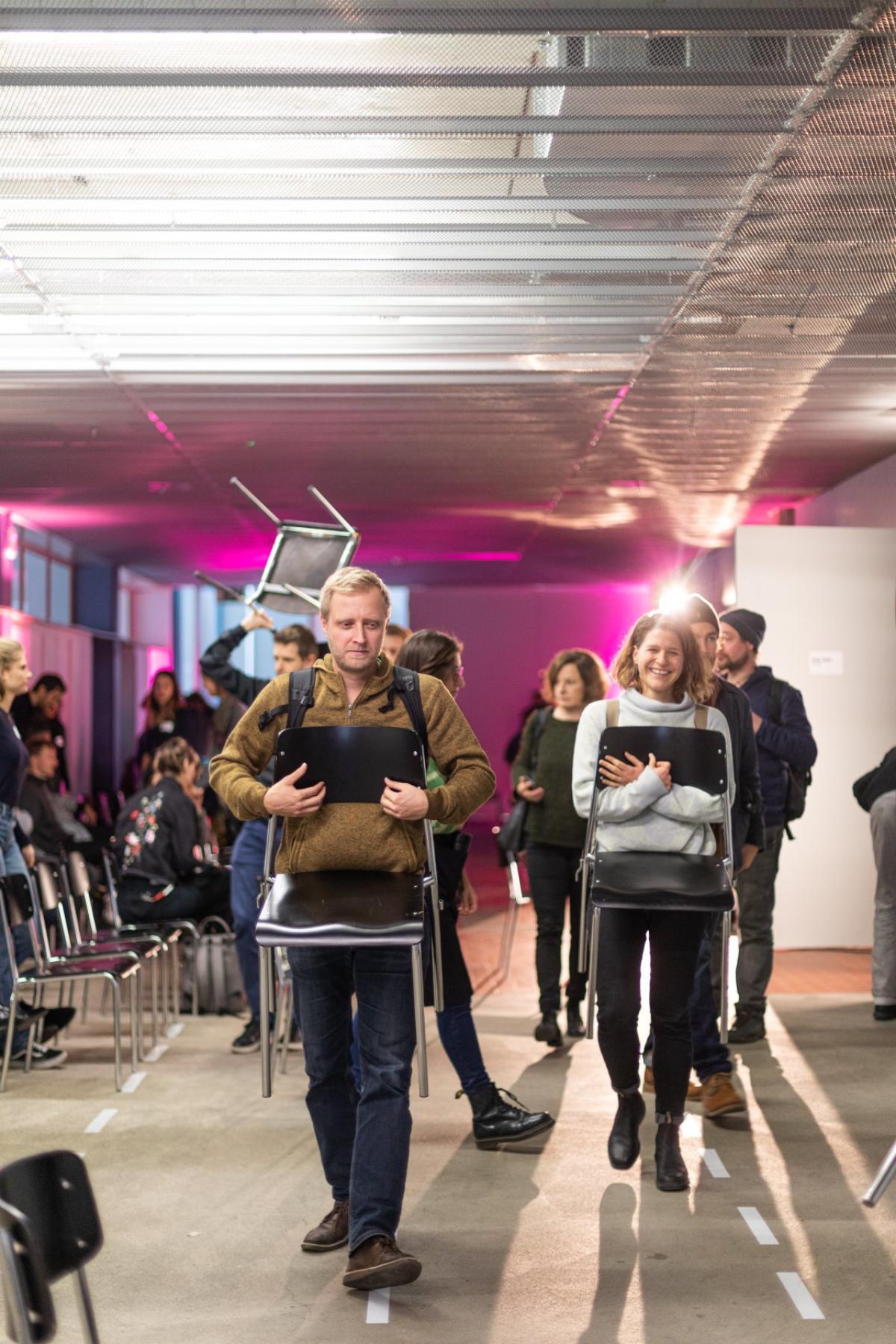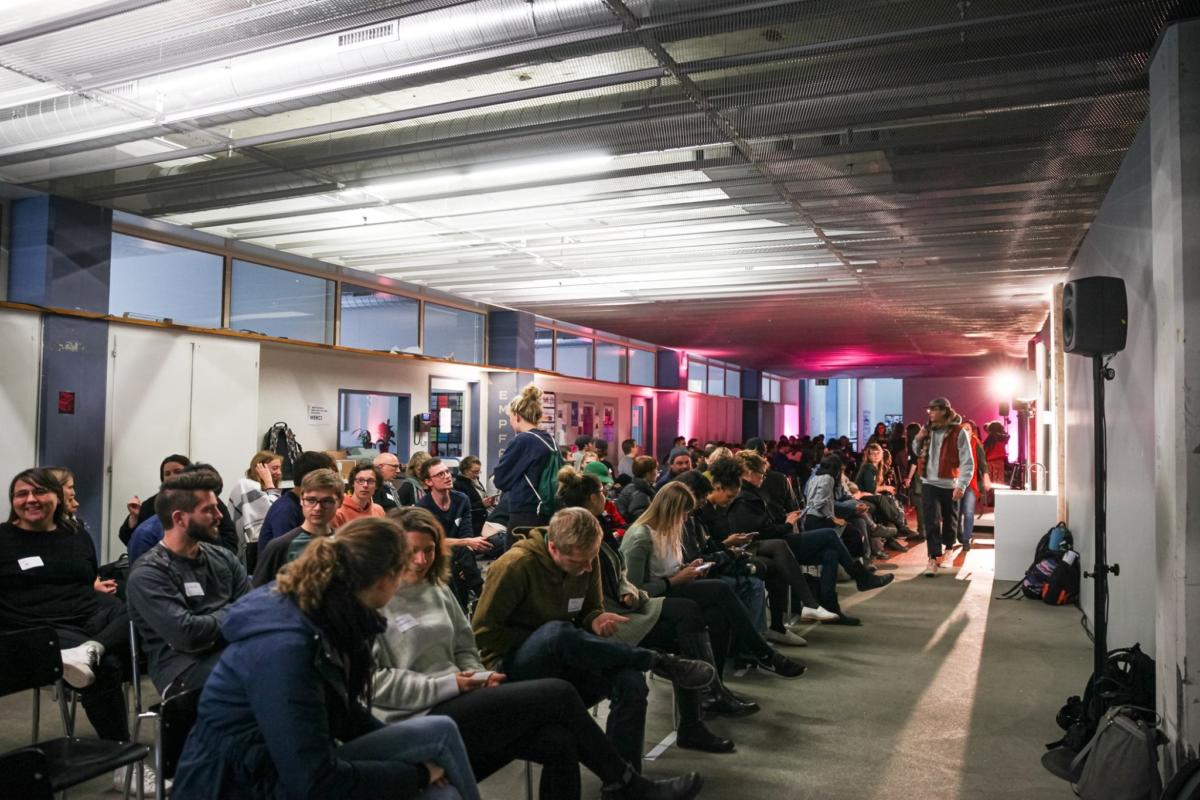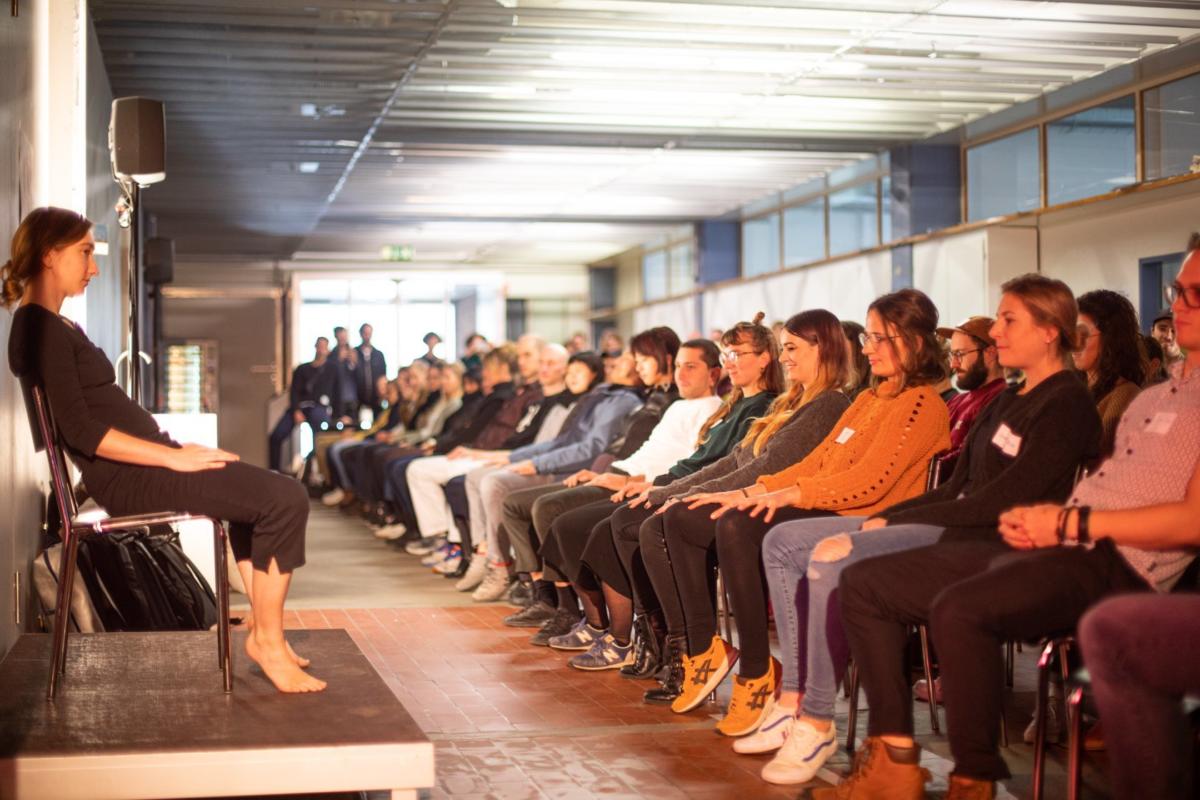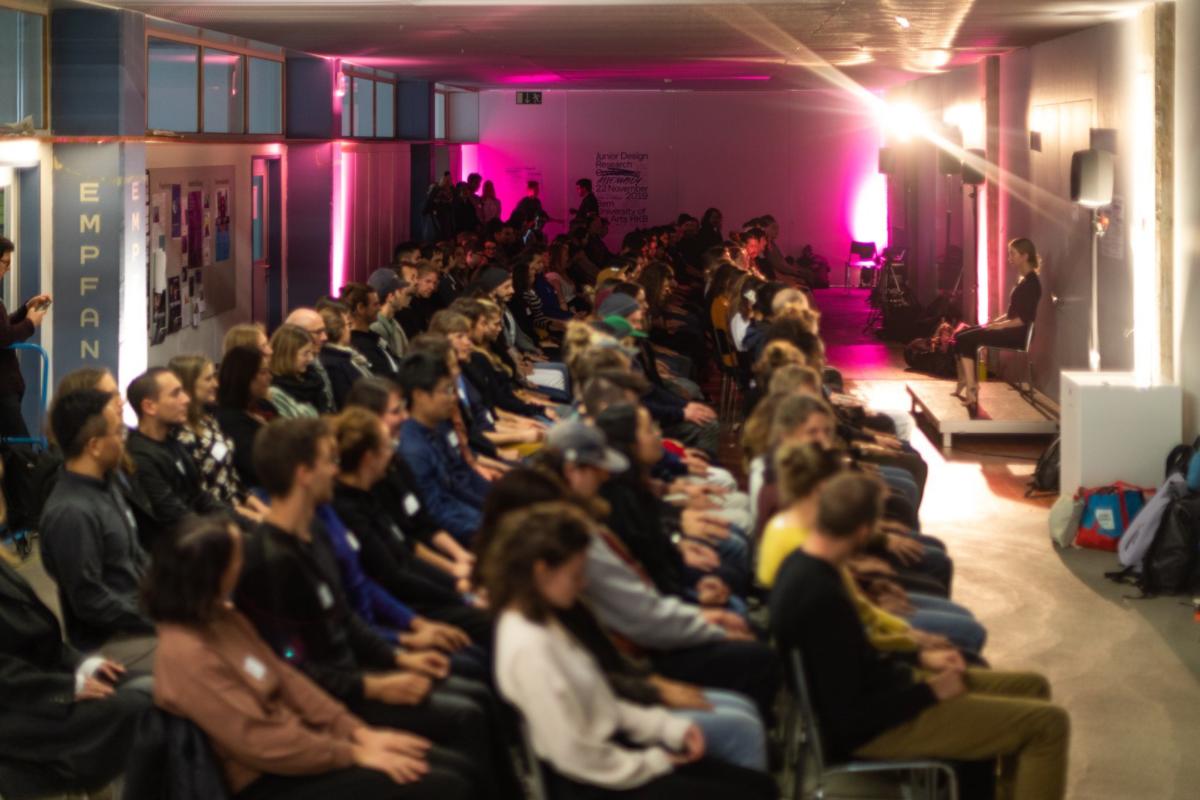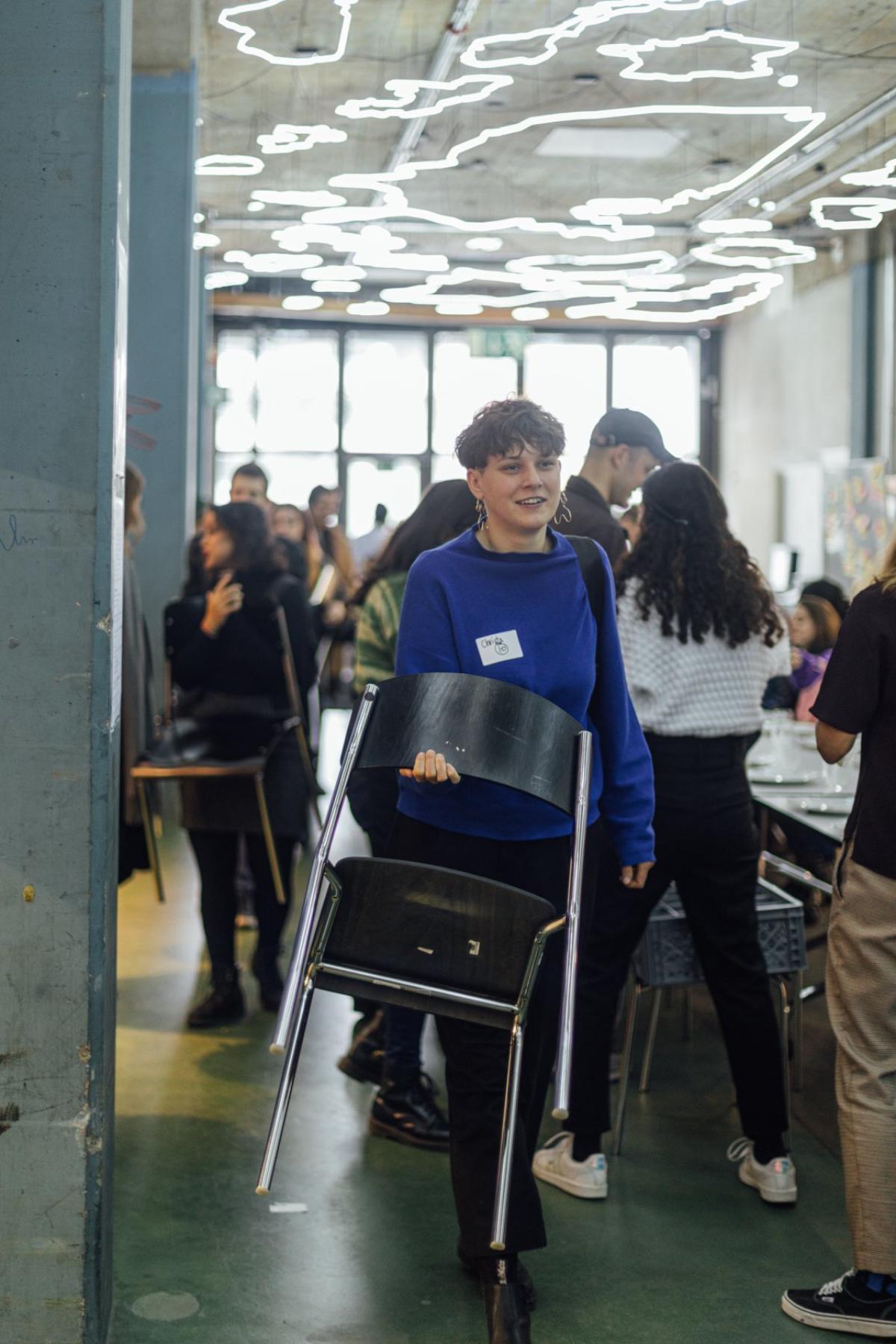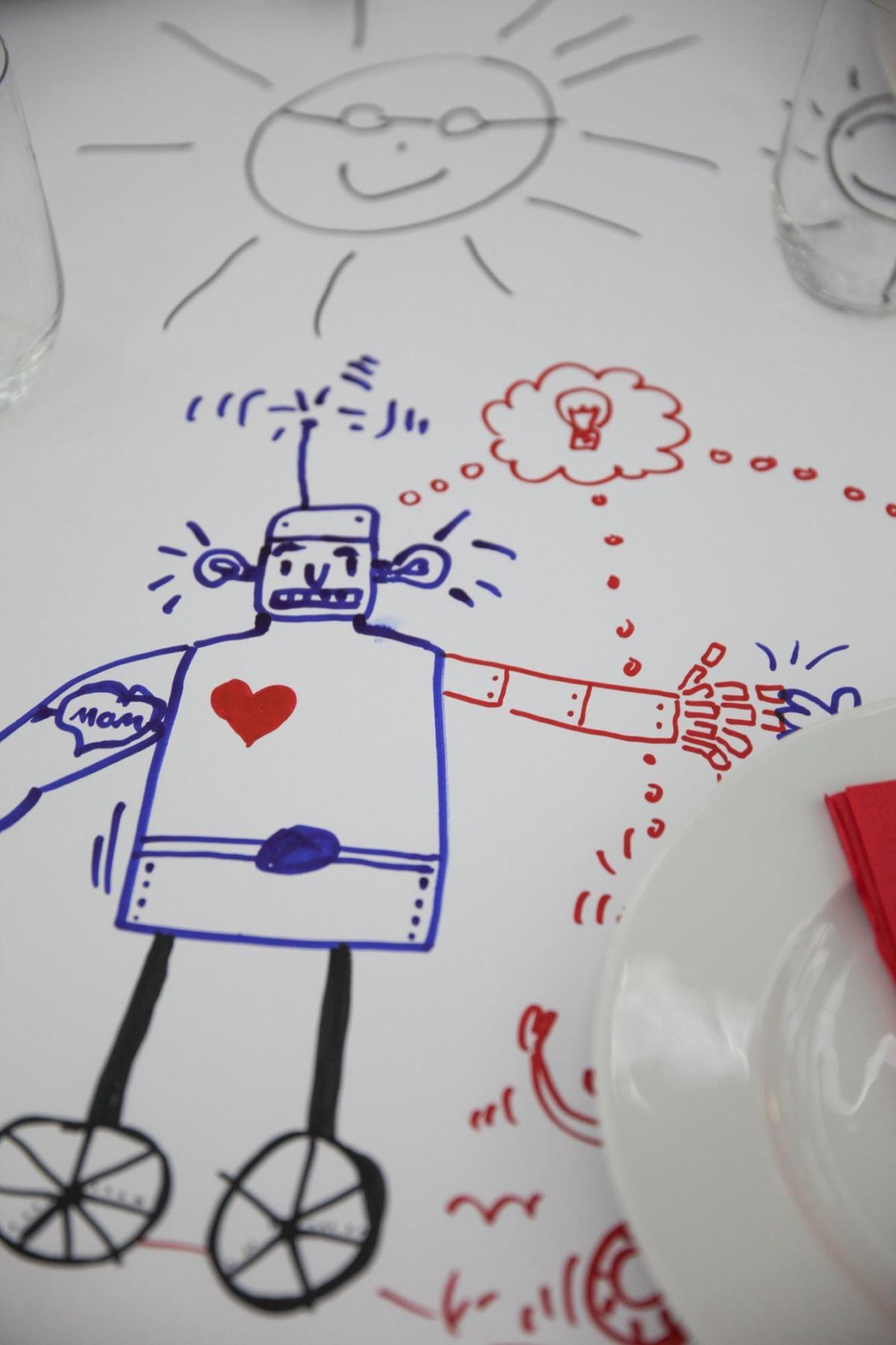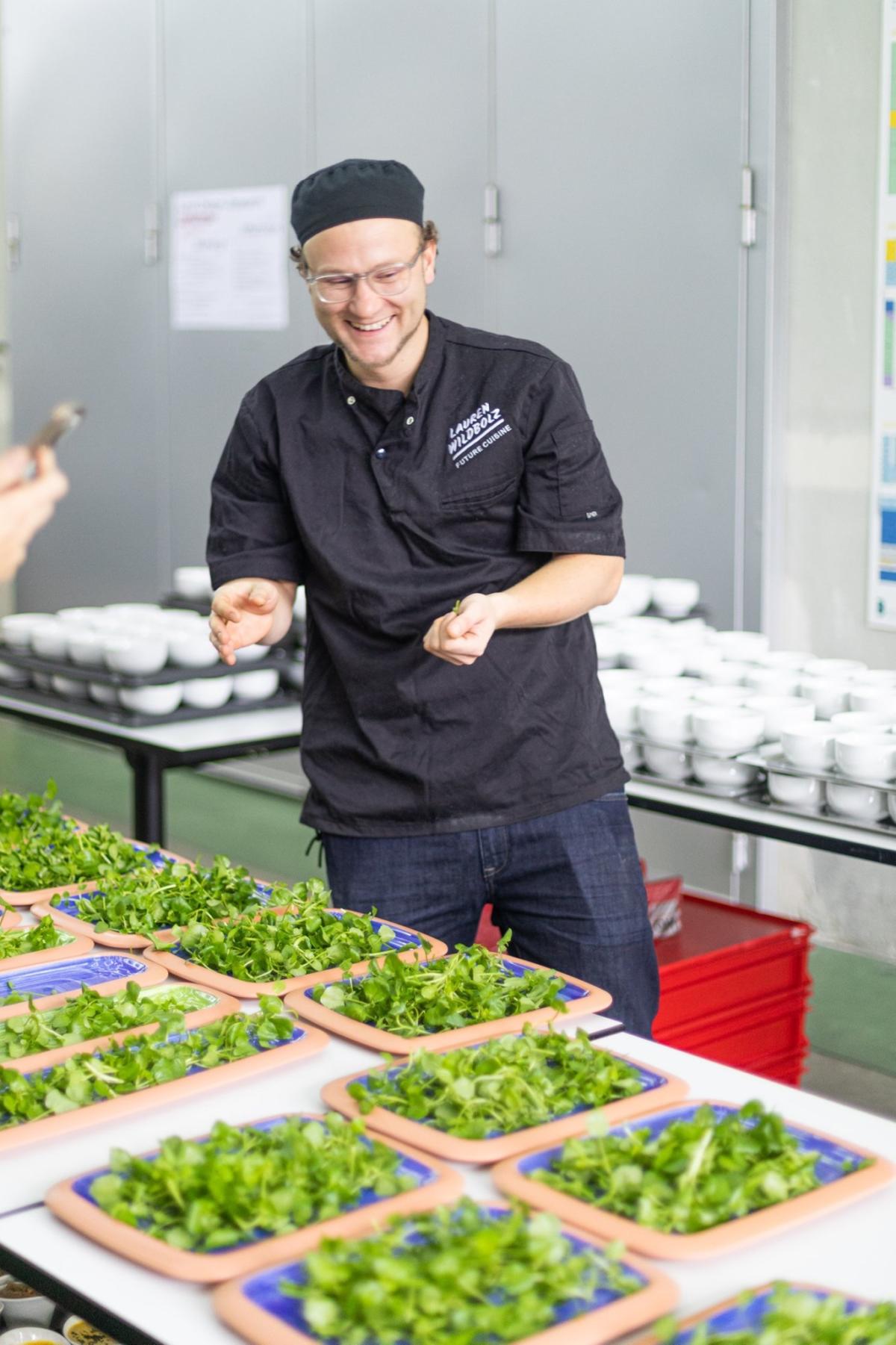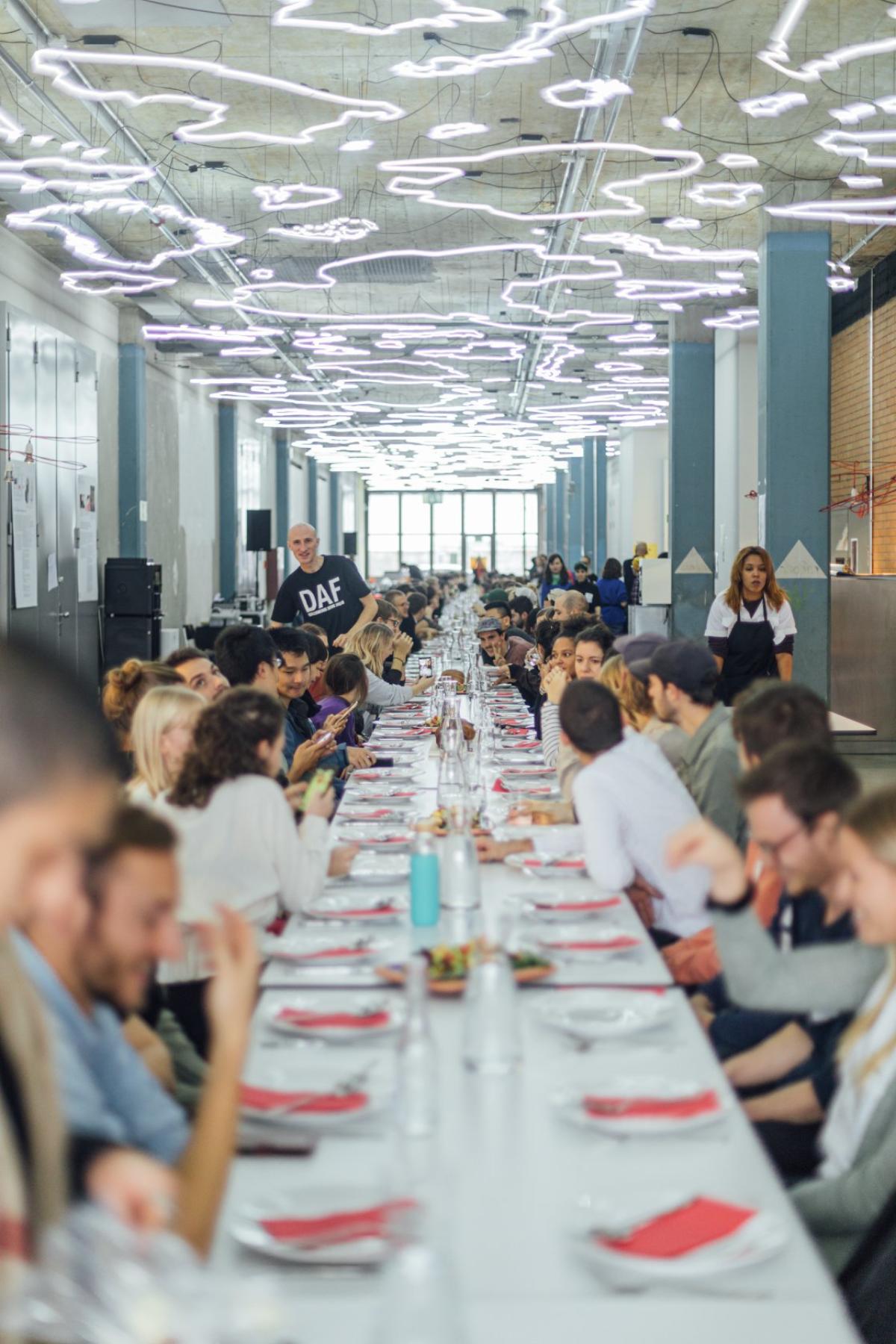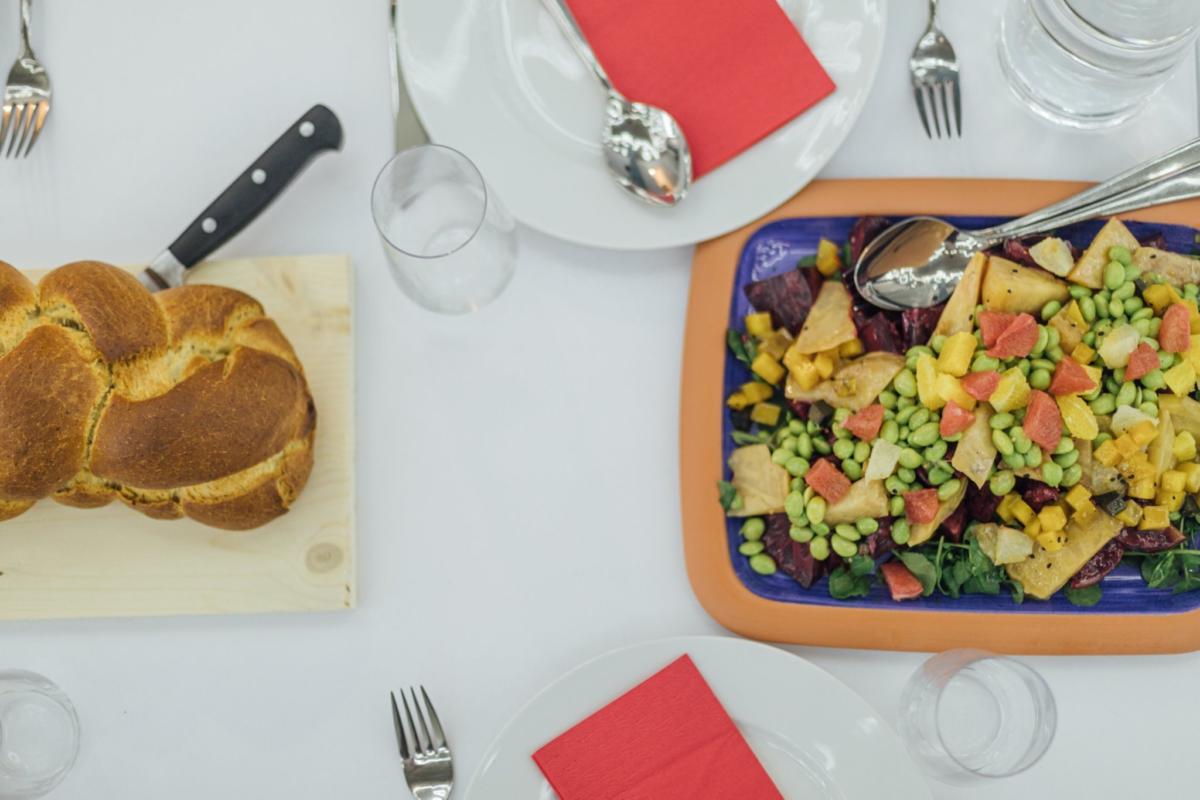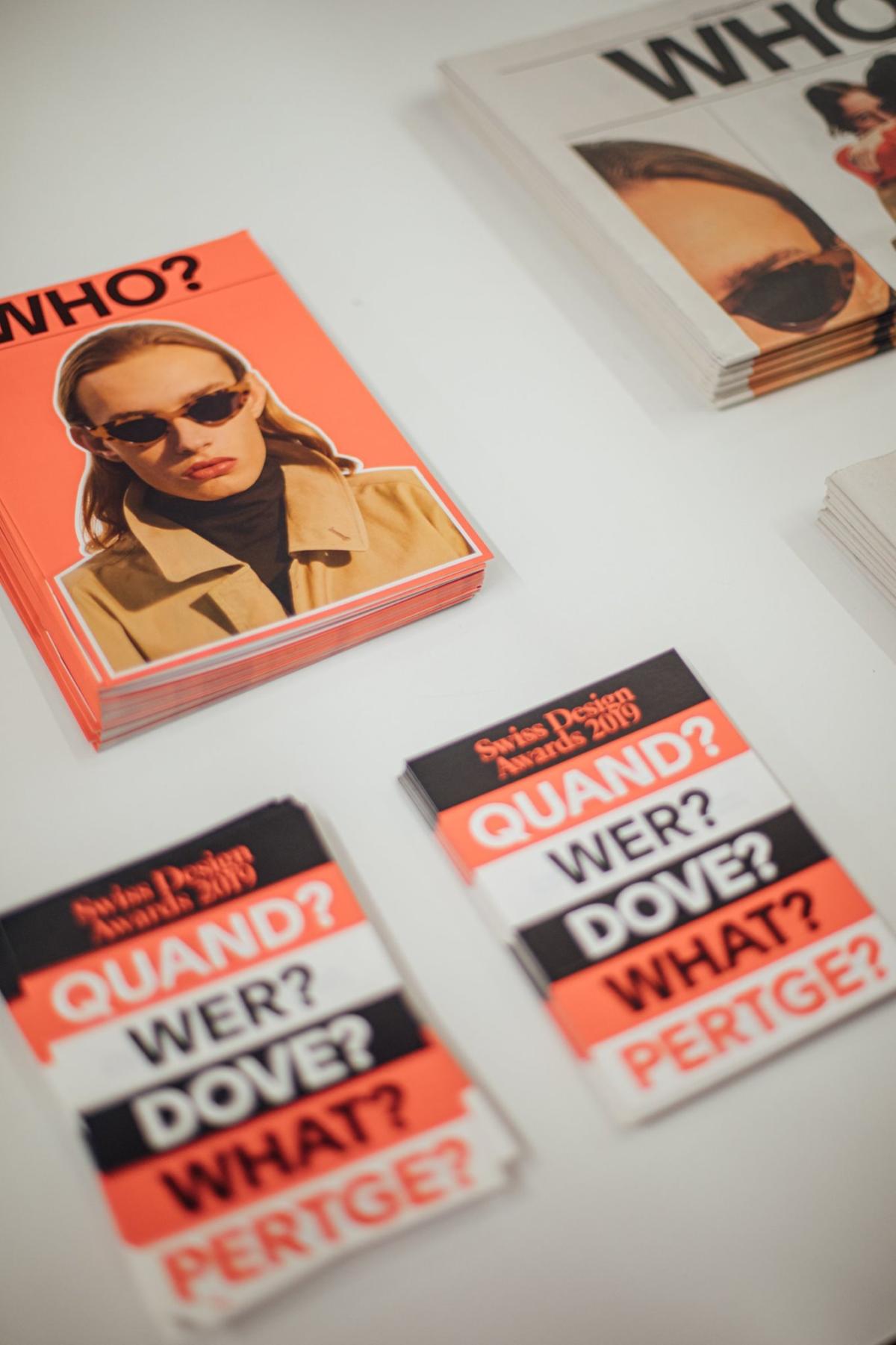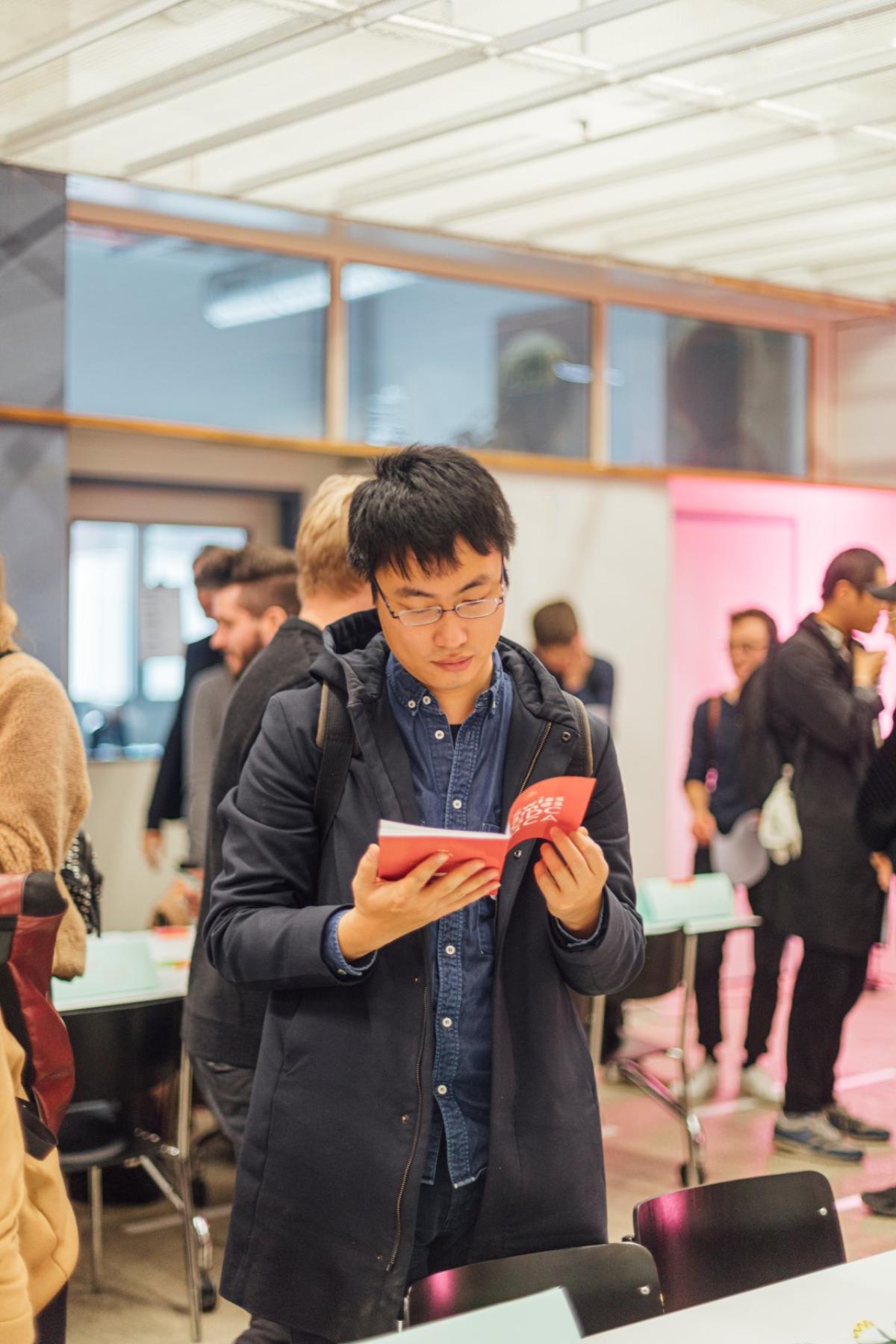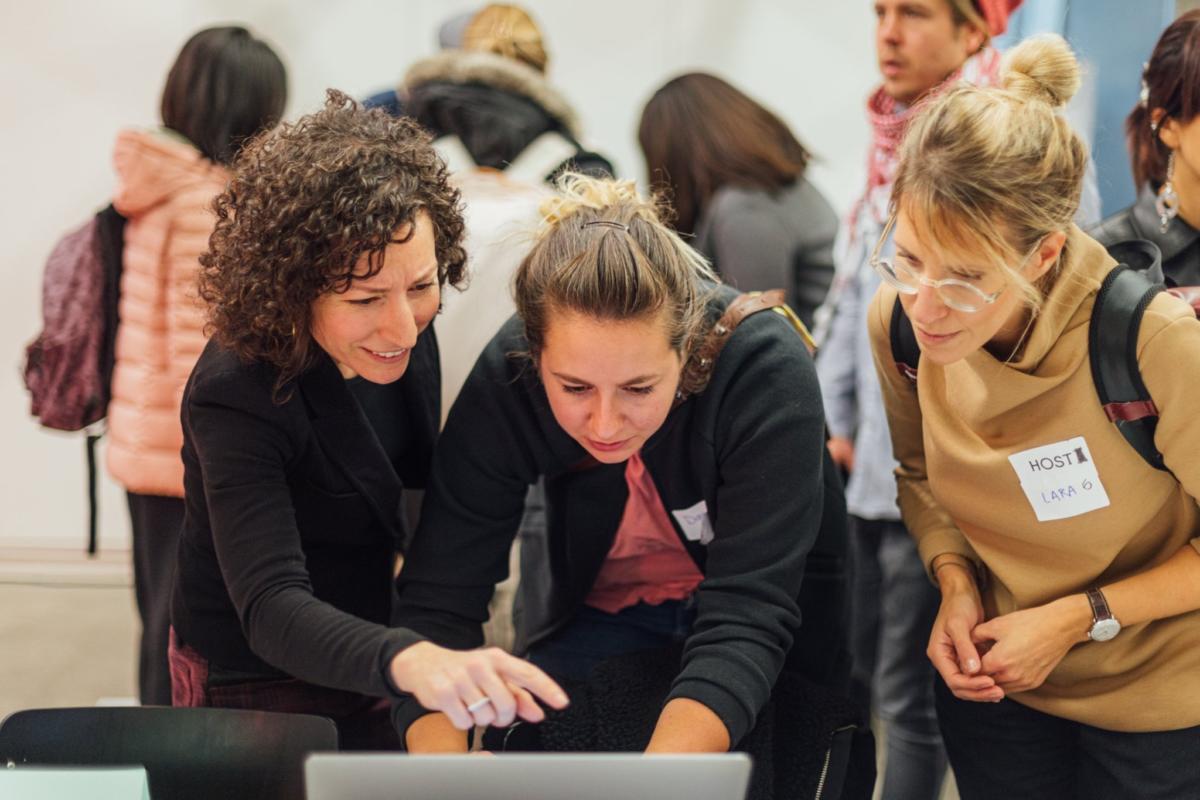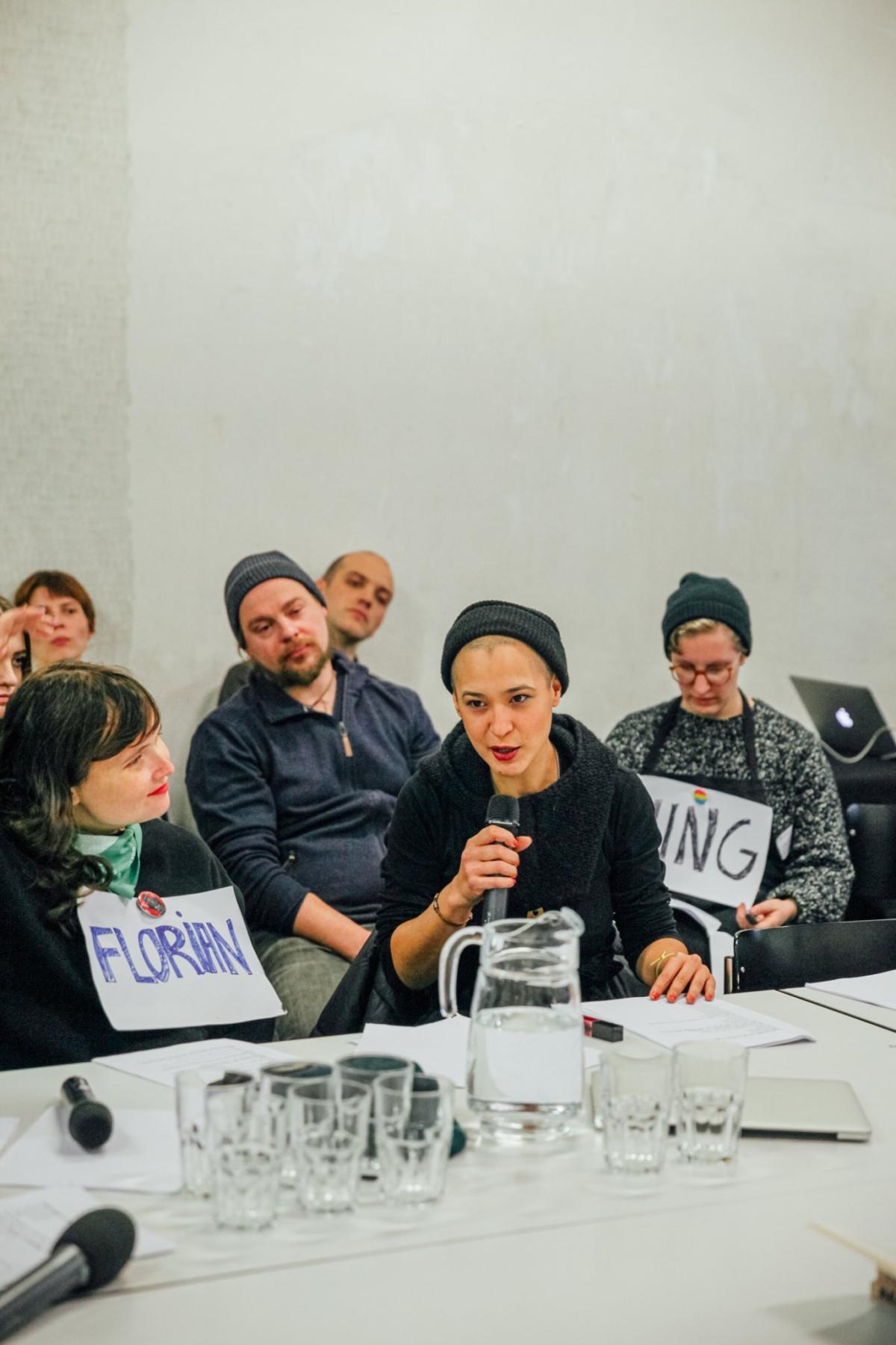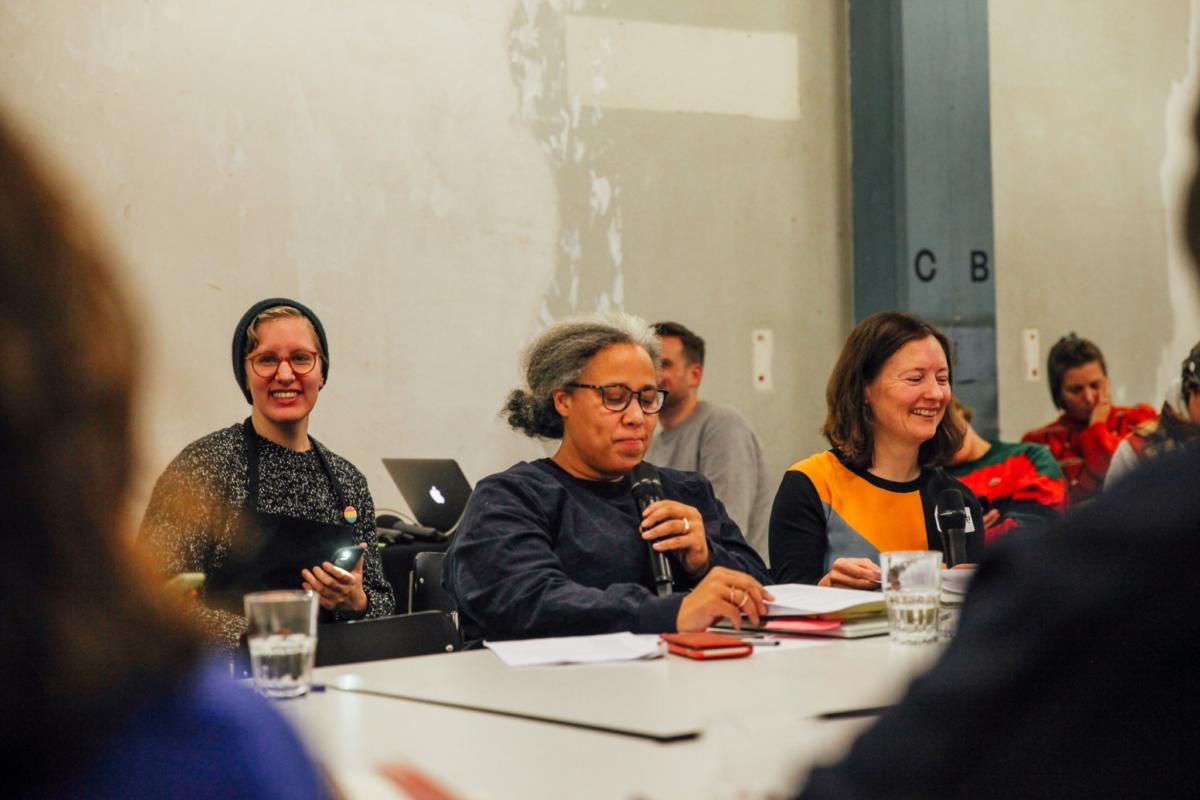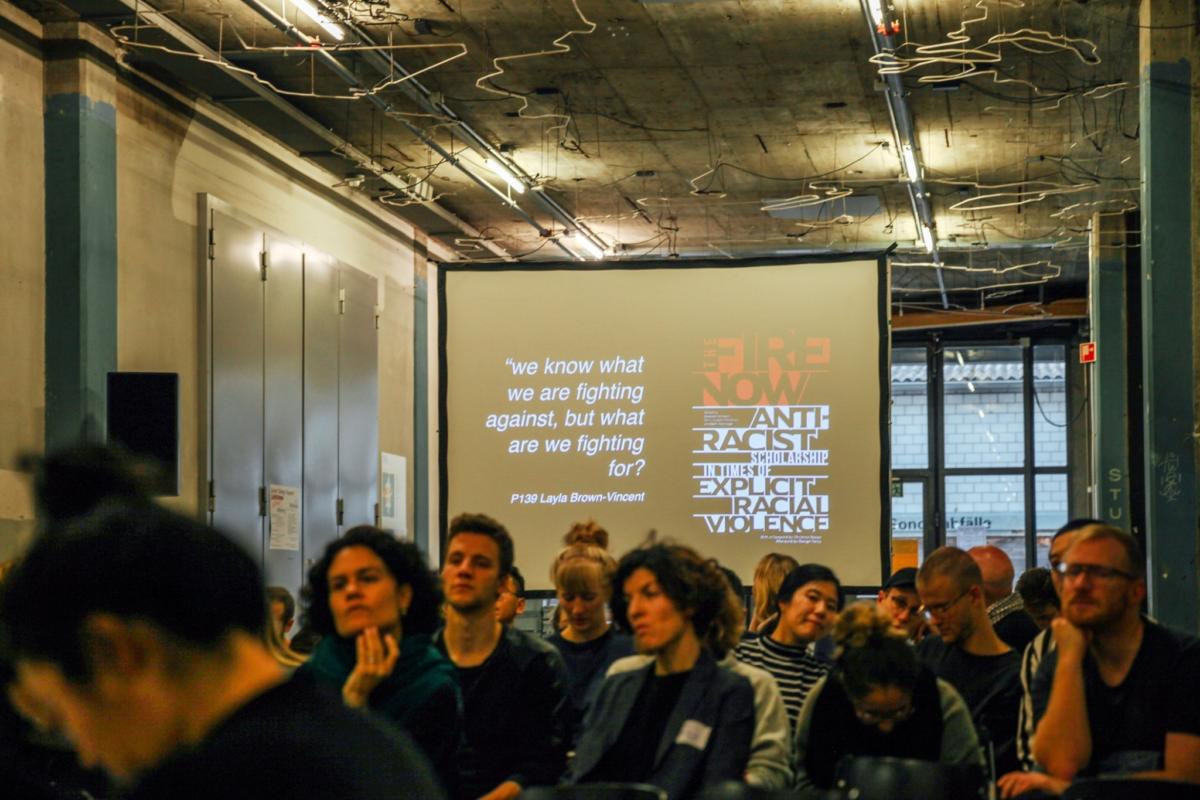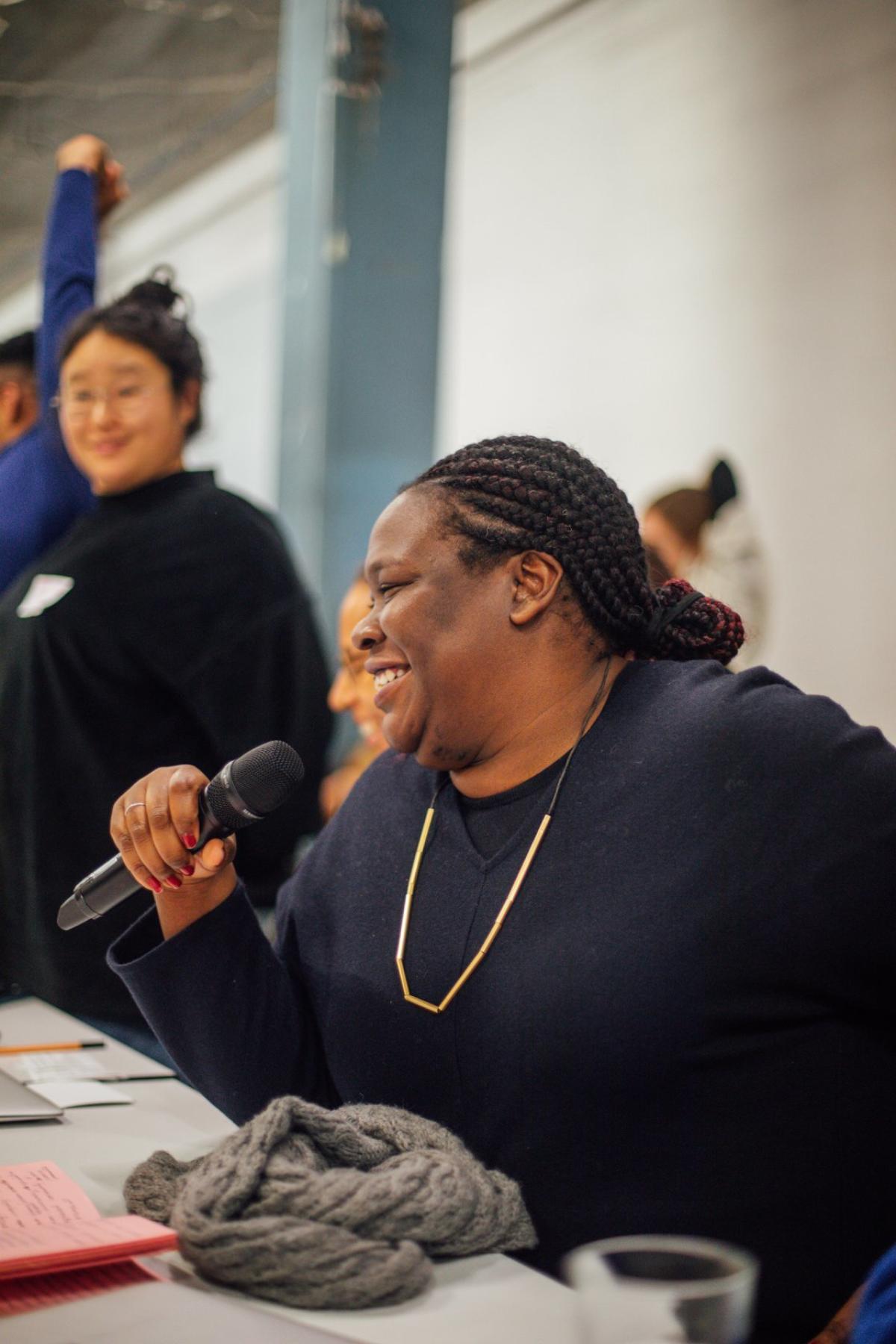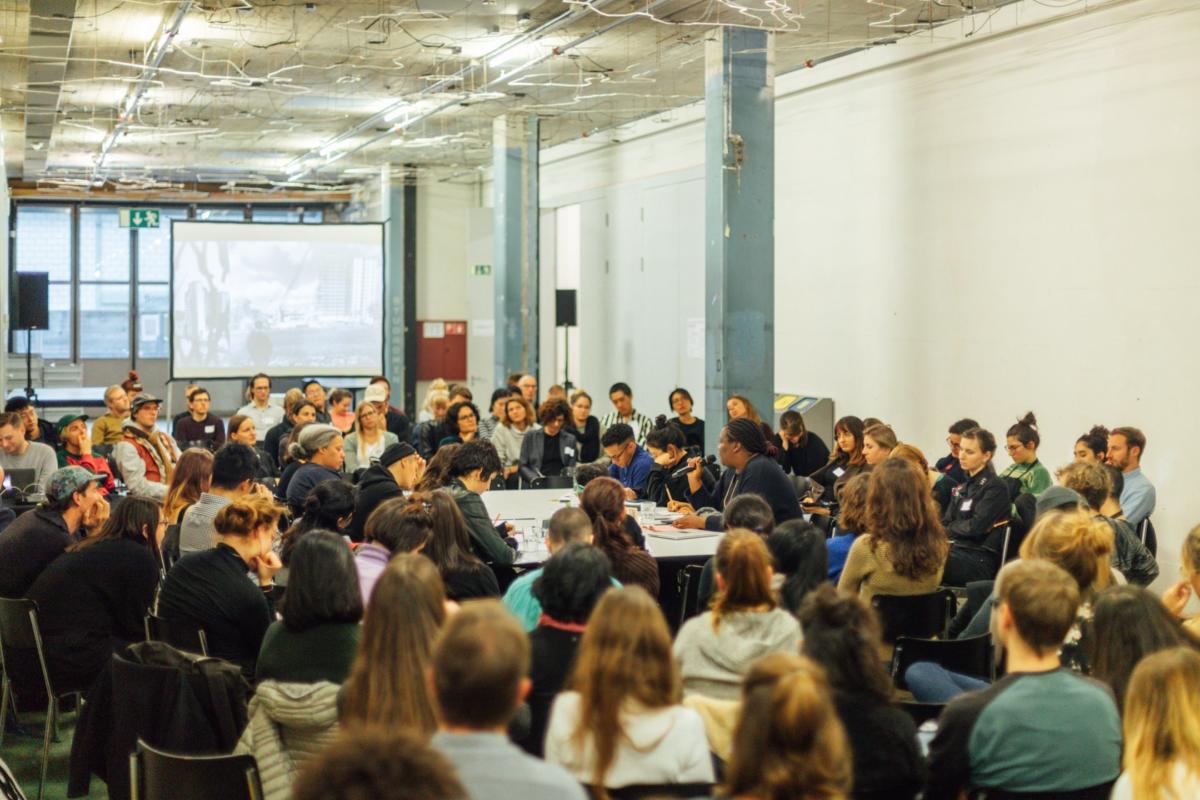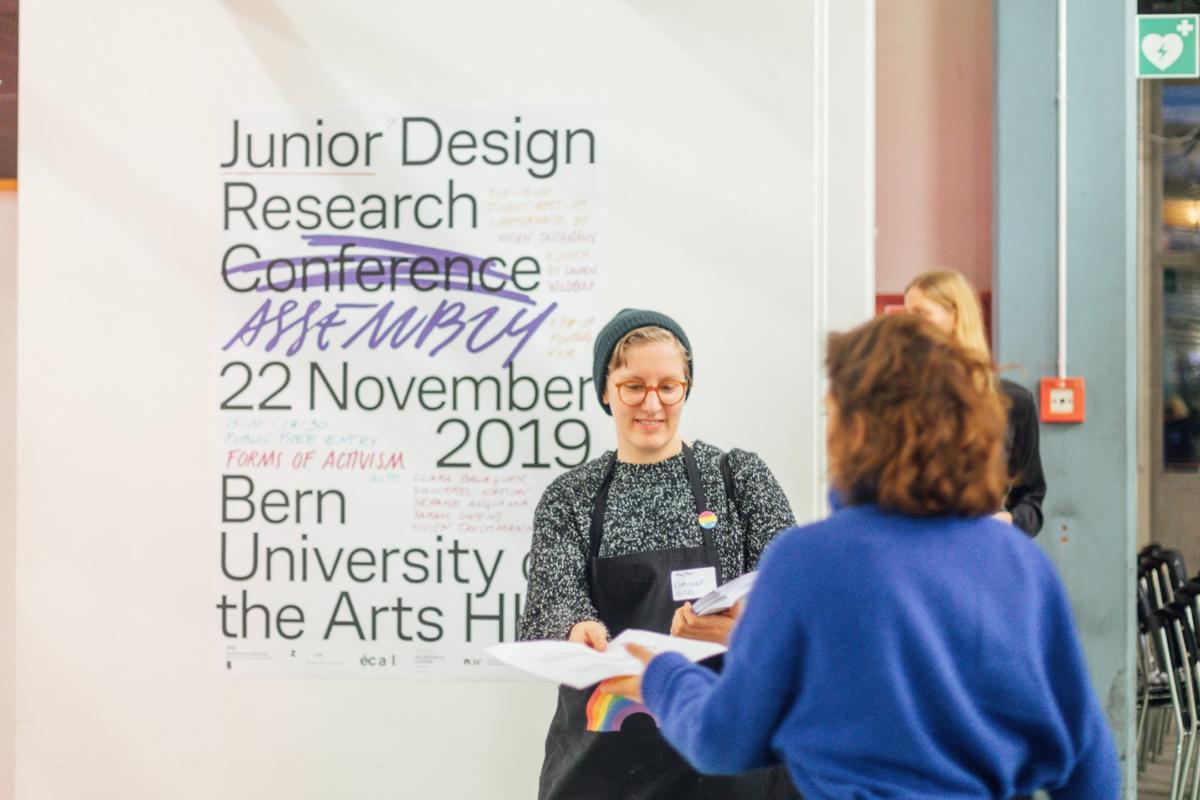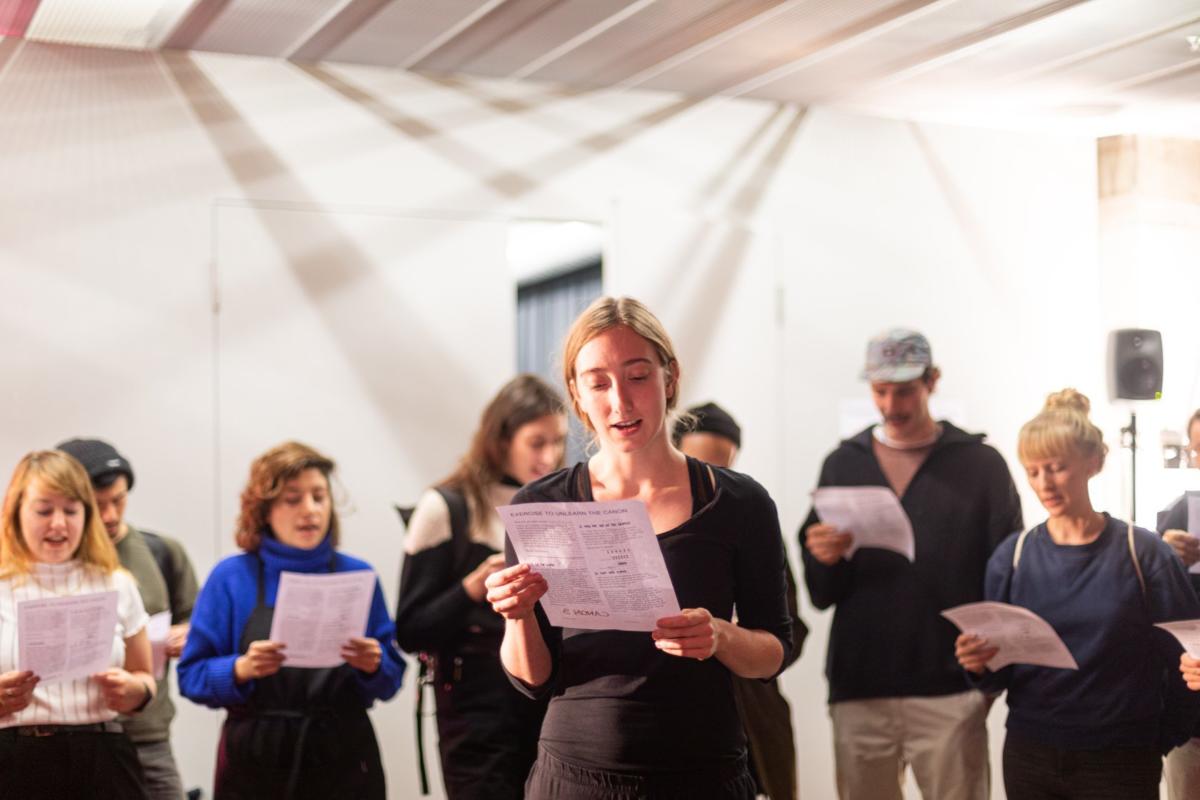Every year in November, master students from the six universities of applied arts in Switzerland assemble for the Junior Design Research Conference. Their backgrounds are various, their interests multifarious. Looking for common ground across fourteen design specializations may seem like a hard—if not impossible—task. Yet that is exactly what this year’s edition wants to do: to find what truly binds us together as a collectivity. As such, the event was purposely retitled “Assembly.” Because, “to assemble” means to bring together different parts into one whole. In a political sense, an “assembly” is a gathering of a multiplicity of positions to discuss pressing issues of the world.
“Designers are collaborative by nature, and we have always had the ability to bring different fields together,” says designer, researcher, and educator Danah Abdulla. This quality is, however, impeded by the many design specializations, which function as “narrow borders,” and “prevent us from building meaningful relationships, from developing real collectivity and collaboration together.” Clustered in our narrowed fields, segregated by disciplinary topics, we are blinded by the specialized gaze and consequently disengaged as a collective. As a way out of this “disciplinary containment,” Abdulla proposes “border-thinking”: a decolonial concept that puts forward alternative knowledge traditions and alternative languages of expression in order to think outside established, hegemonic structures.
At the 2019 Junior Design Research Assembly, we want to take the term “assemble” at face value, and create an event that aims at forging bonds, strengthening networks and building collectivity. Understanding that border thinking is not an additive concept but a systemic one, the Assembly— this year in its 9th edition—has been entirely reimagined. Traditional modes of paper and project presentation, based on a hierarchy of speaker-receiver, have been set aside to make space for newly envisioned formats. The event unfolds through a one-day, multifaceted program for participation, debate, and exchange, giving space for multiple perspectives, positions, and personalities to co-exist. With this, the conference hopes to ignite a reflection on what binds us together as a group, which is a crucial step towards understanding how we designers are entangled with complex social and environmental problems, and thereby can gain agency by playing our part in impacting change.
The concept of ‘border thinking’ was first used by Gloria Anzaldúa in her book ‘Borderlands/La Frontera: The New Mestiza’ and has subsequently been developed by decolonial thinkers, most prominently Walter Mignolo. It is based on the idea that the theoretical and the epistemic must have a lived dimension to them, and that theories already exist which sit at the very borders of the colonial matrix of power (if not outside it). ‘Lived’ here is meant in the sense of the experiences of those who have been excluded from the production of knowledge by modernity. Border thinking does not happen irrespective of modernity but in response to it, as part of real-life struggles against the oppressive apparatus of the colonial matrix of power. Thus, “border thinking is the epistemology of the exteriority; that is, of the outside created from the inside” (Mignolo & Tlostanova, 2006:206).
All quotes from Danah Abdulla are from her recent talk “Disciplinary disobedience: a border-thinking approach to design,” presented at Dilemma! Dilemma! a conference organized by HKB / MA Design students, in May 2019.
